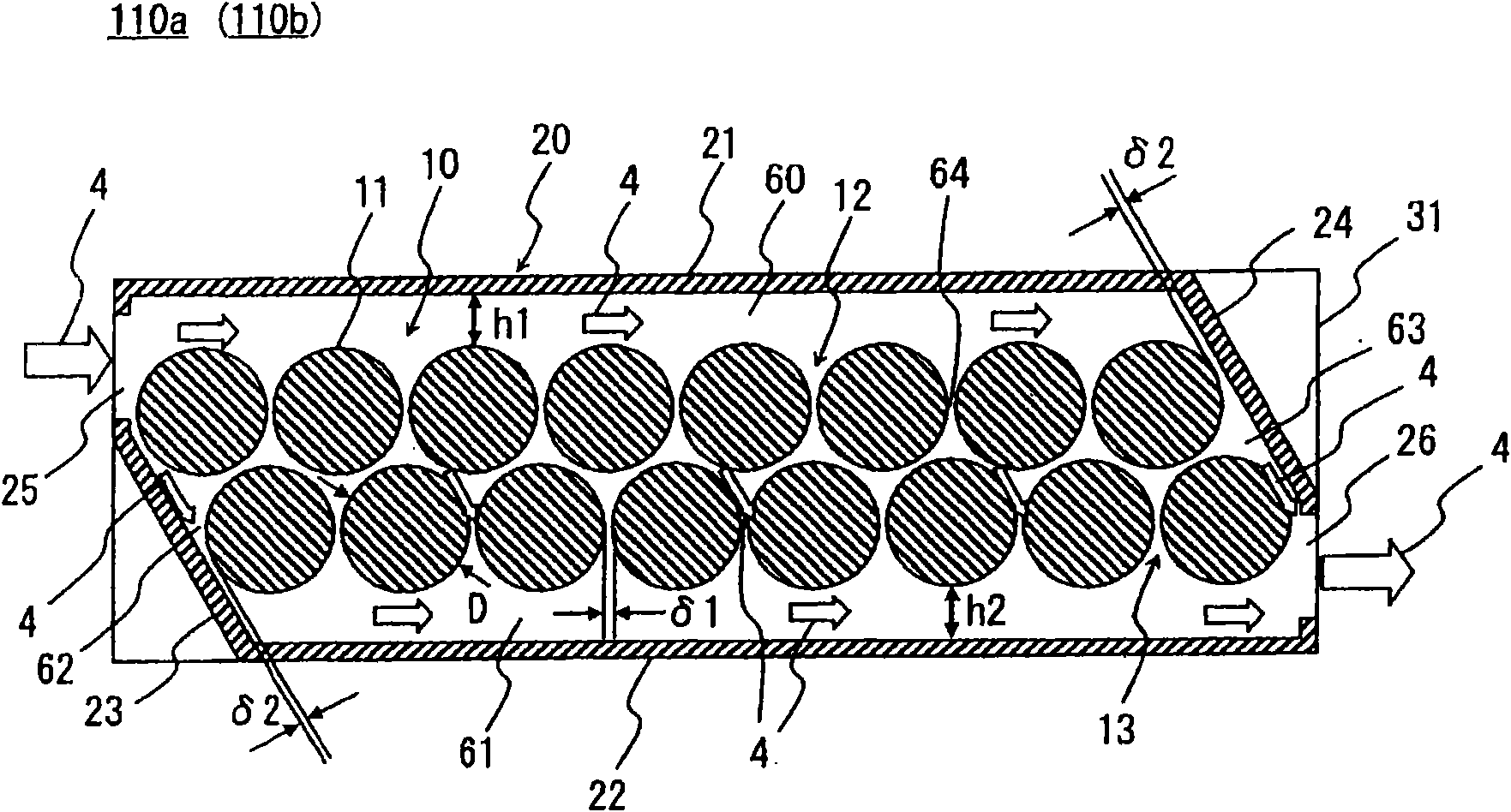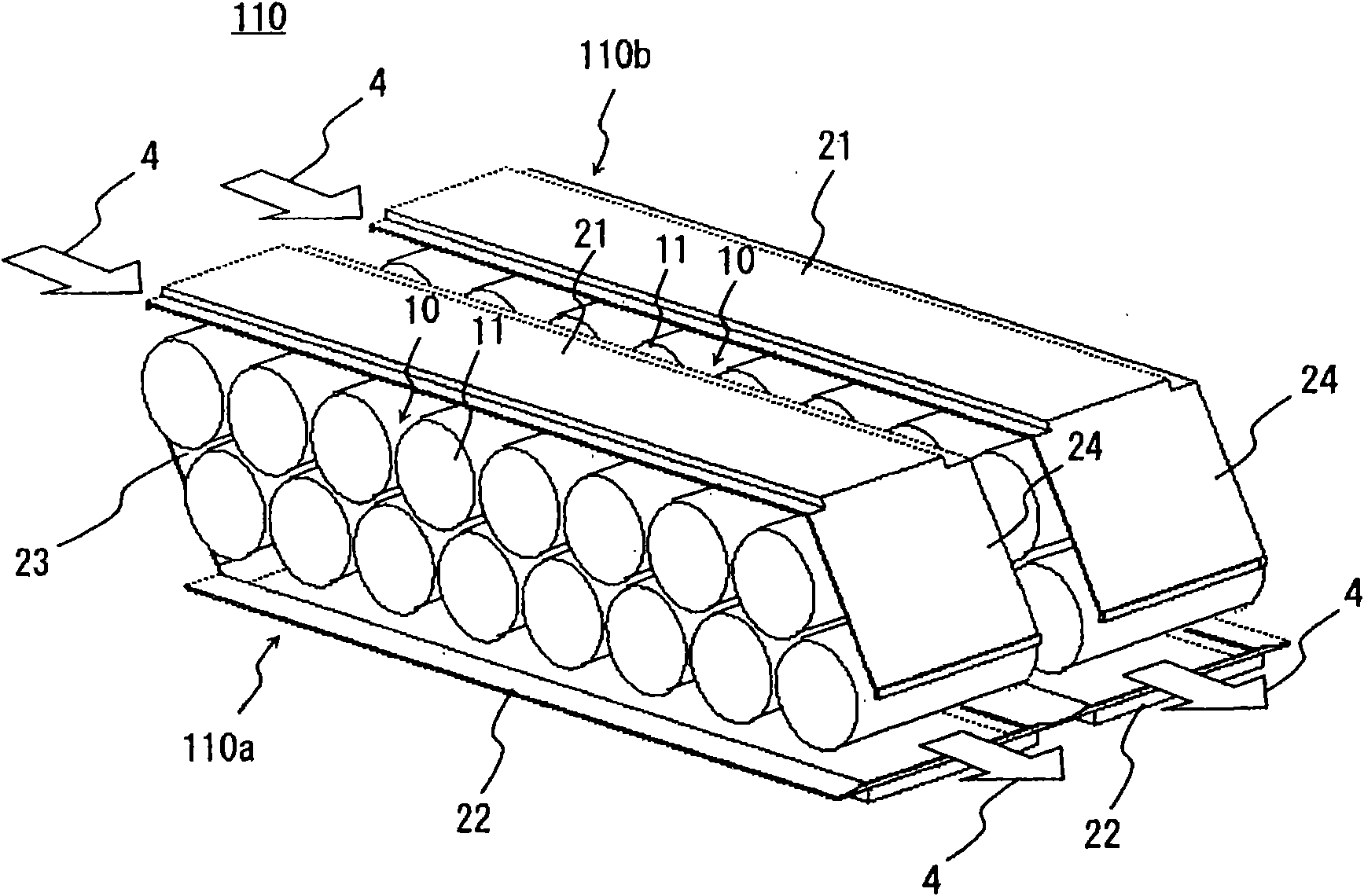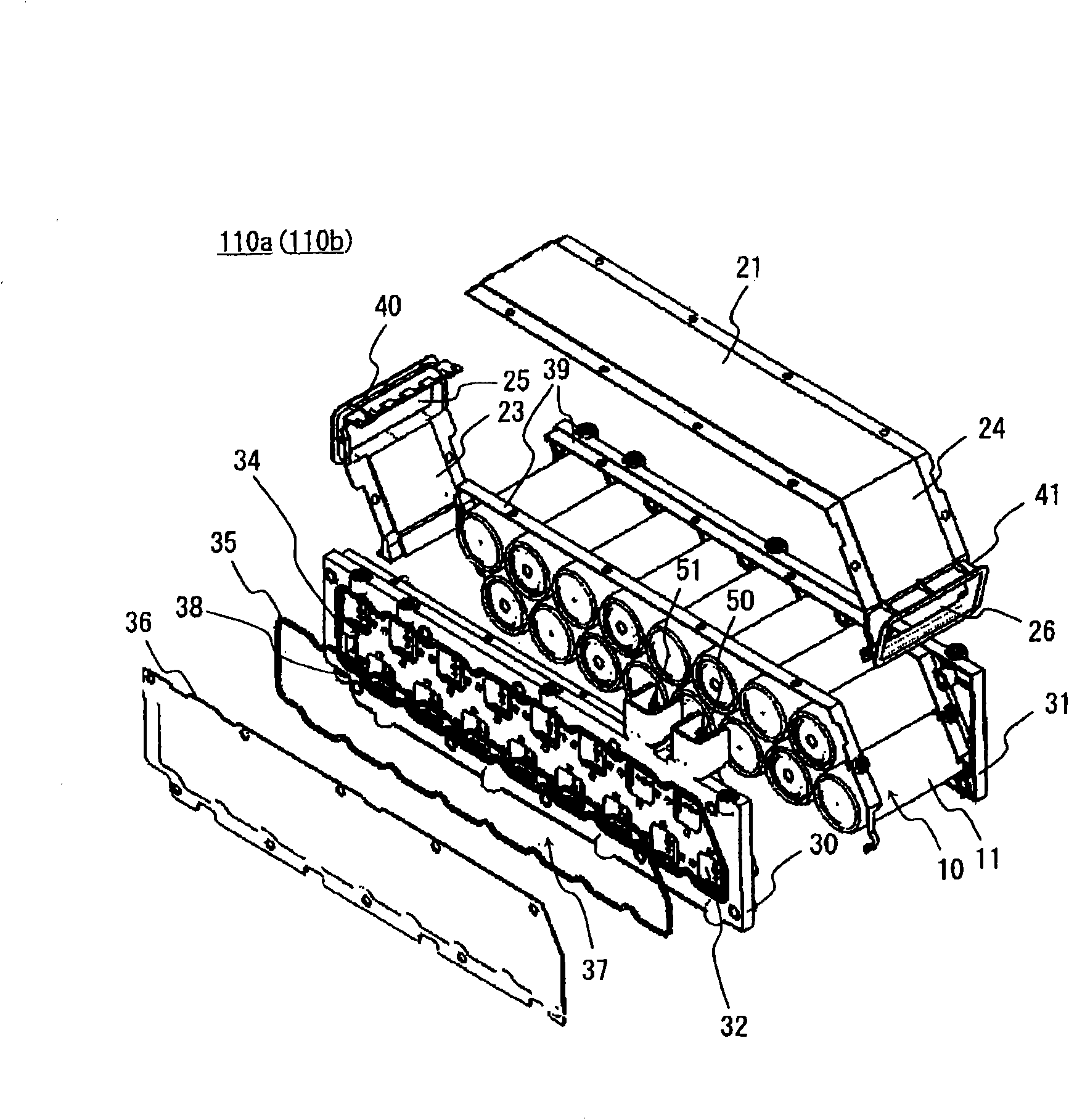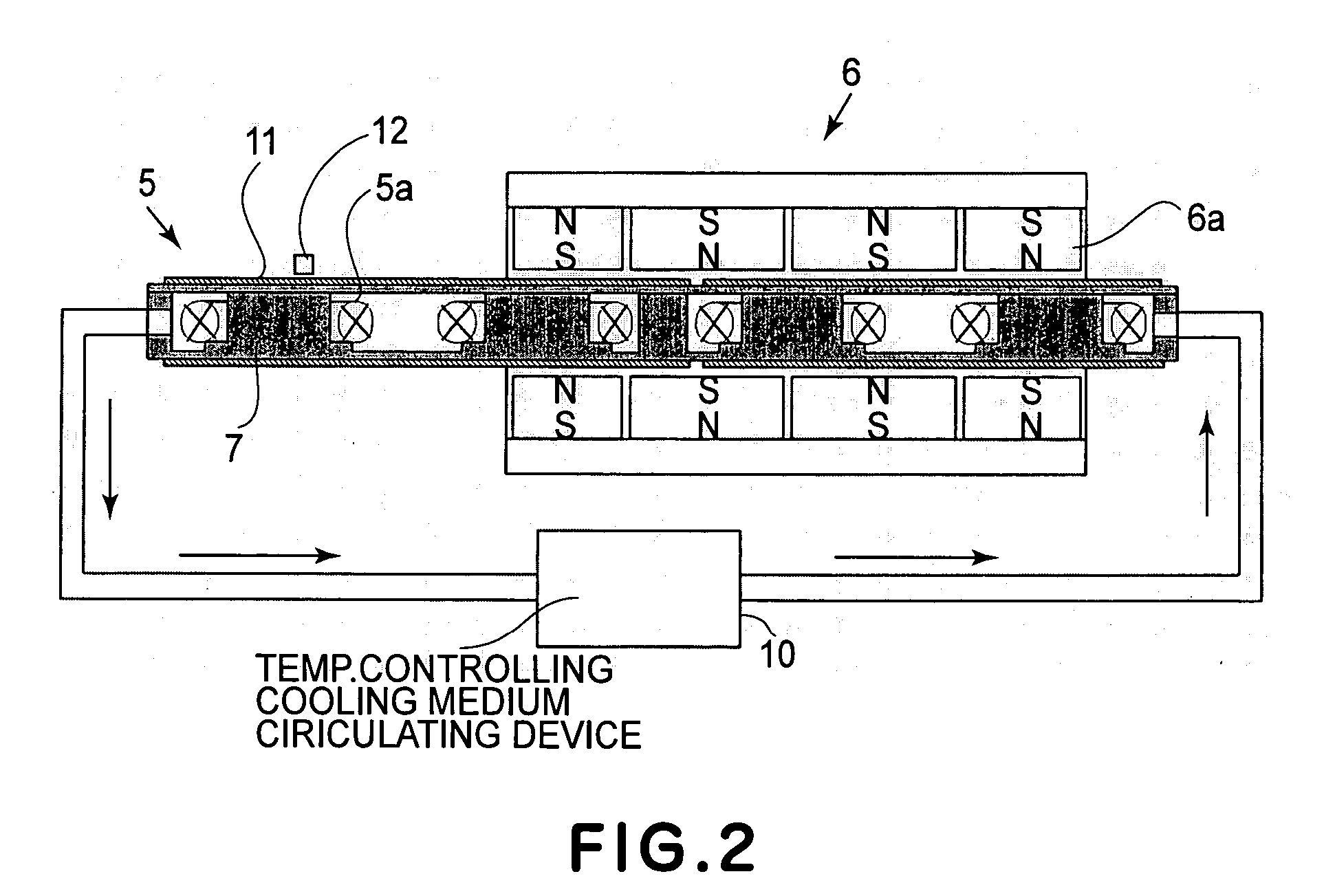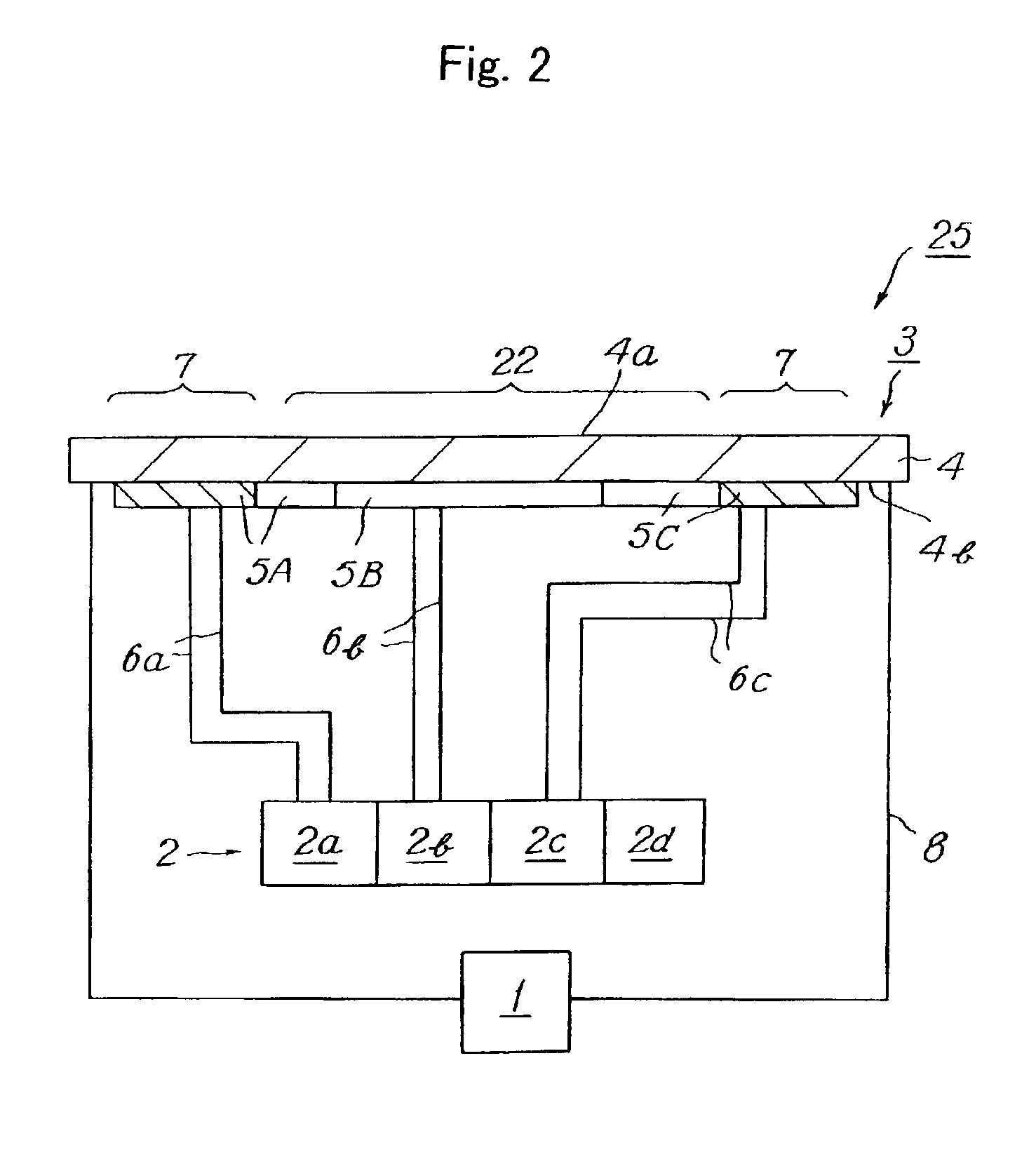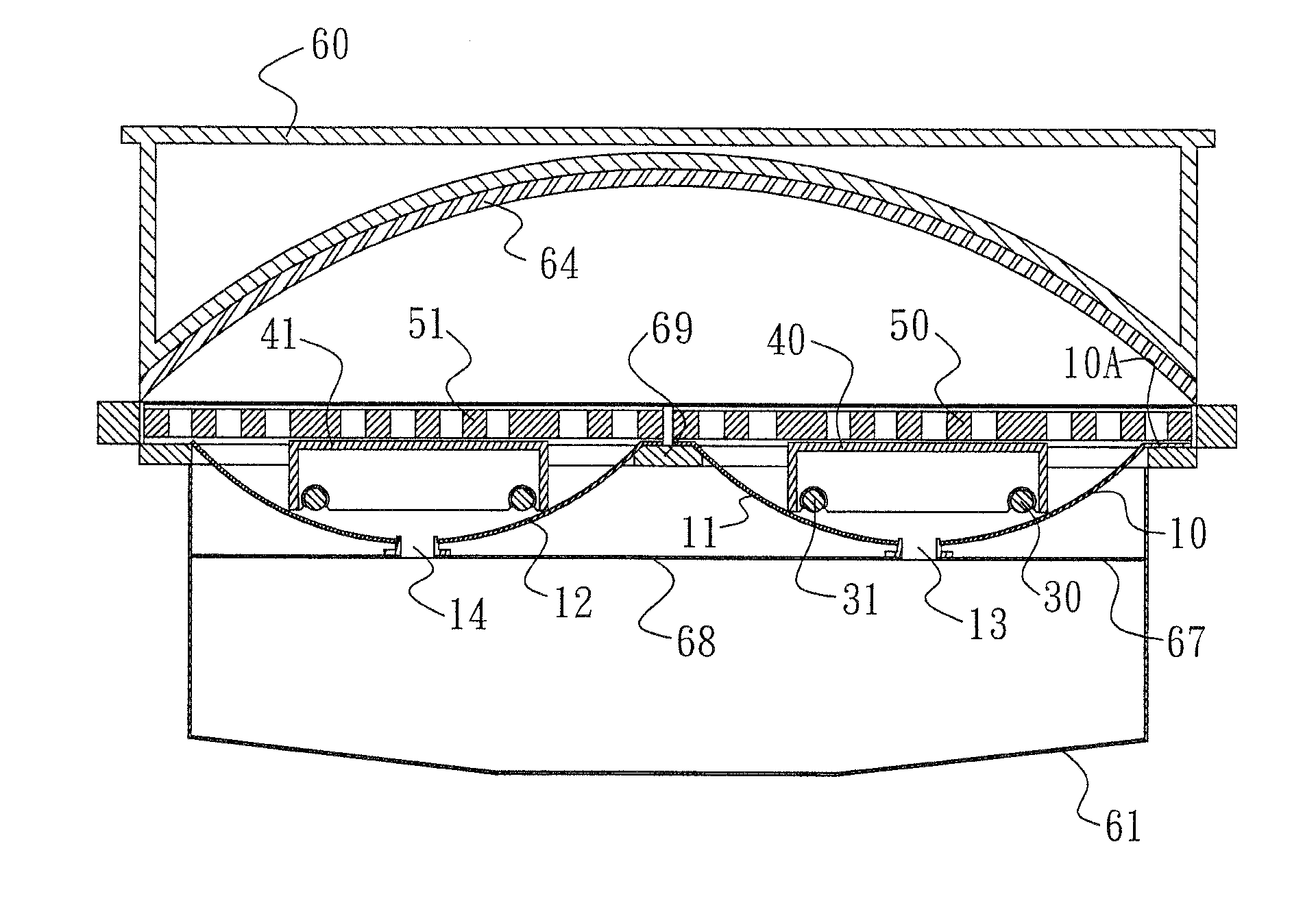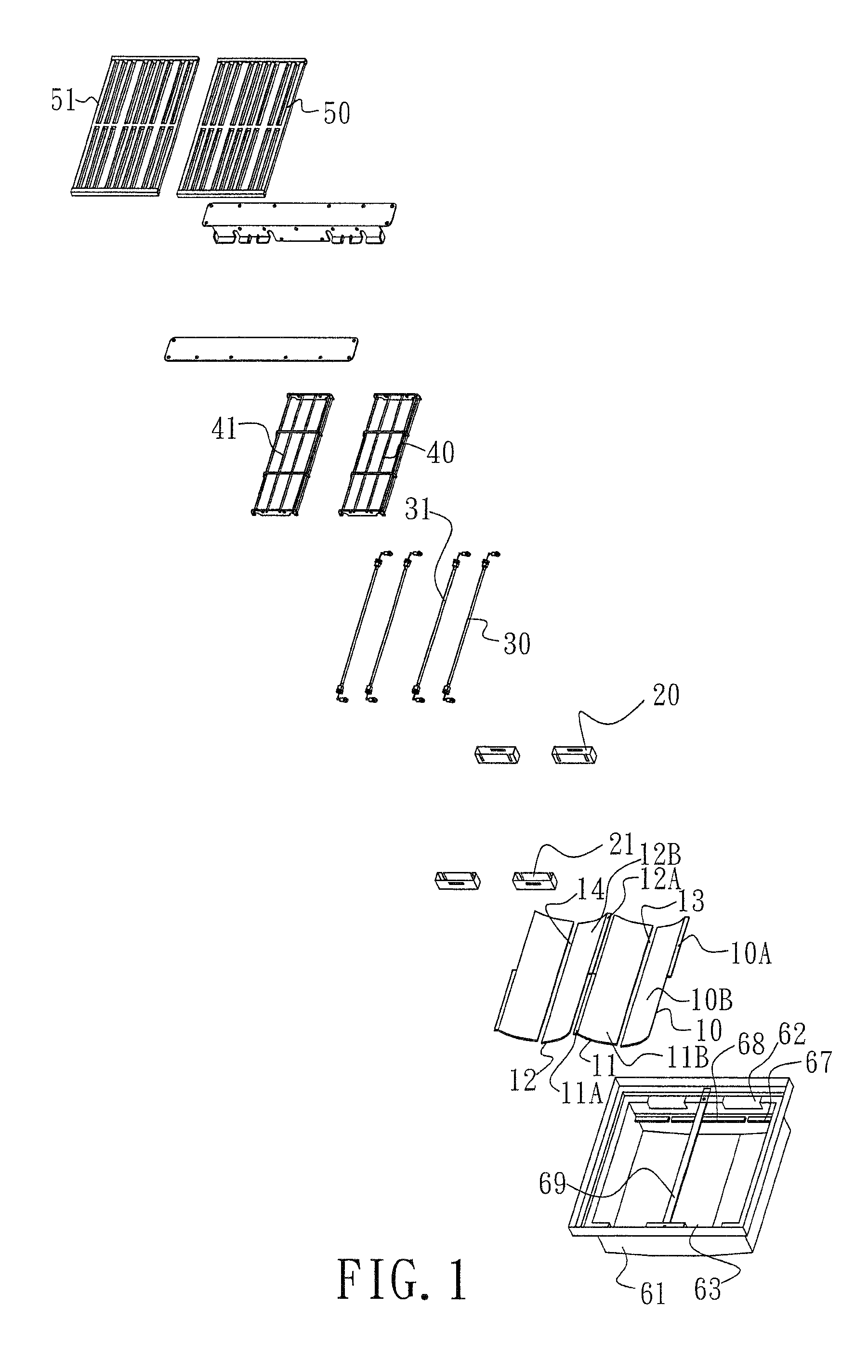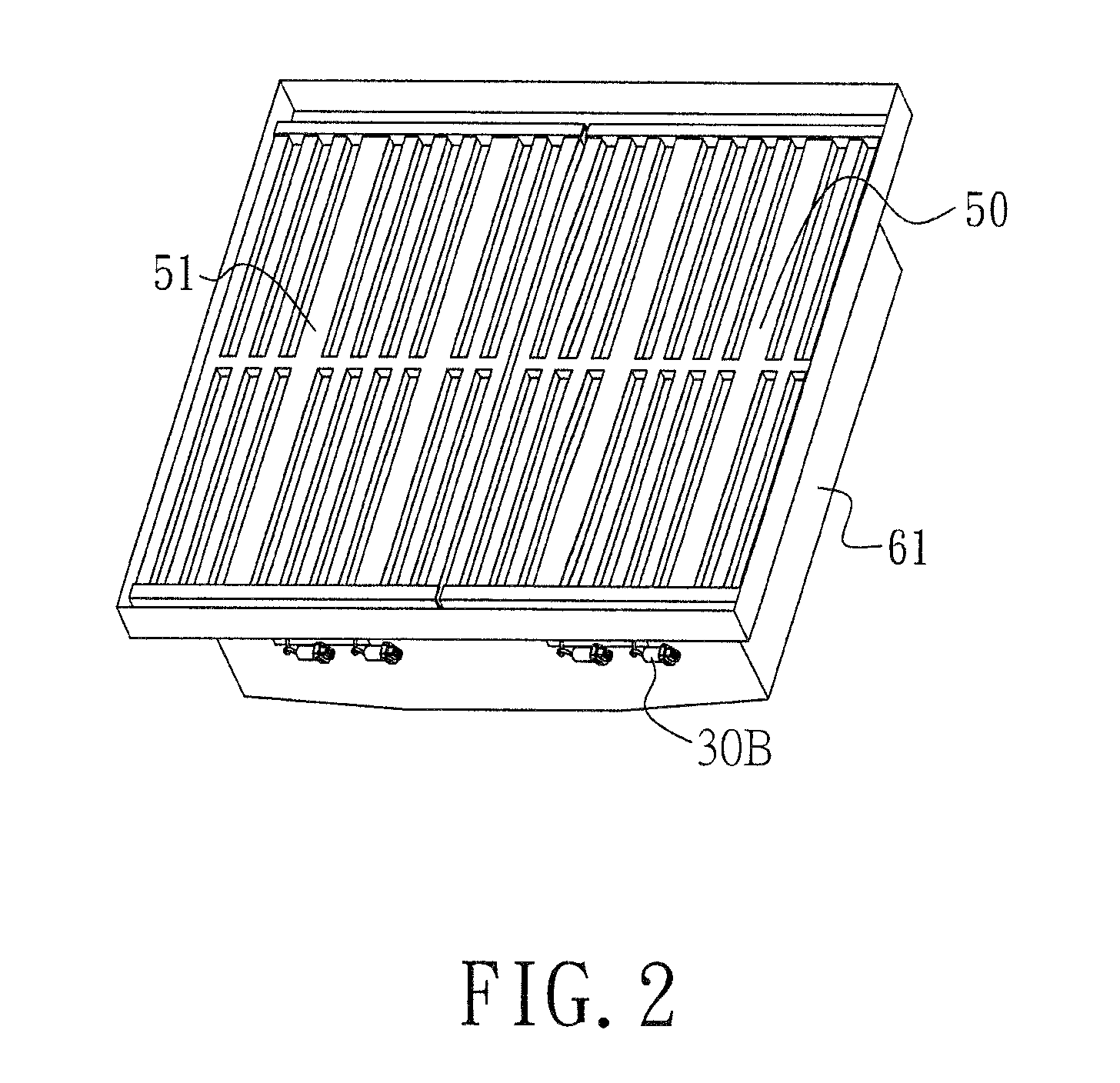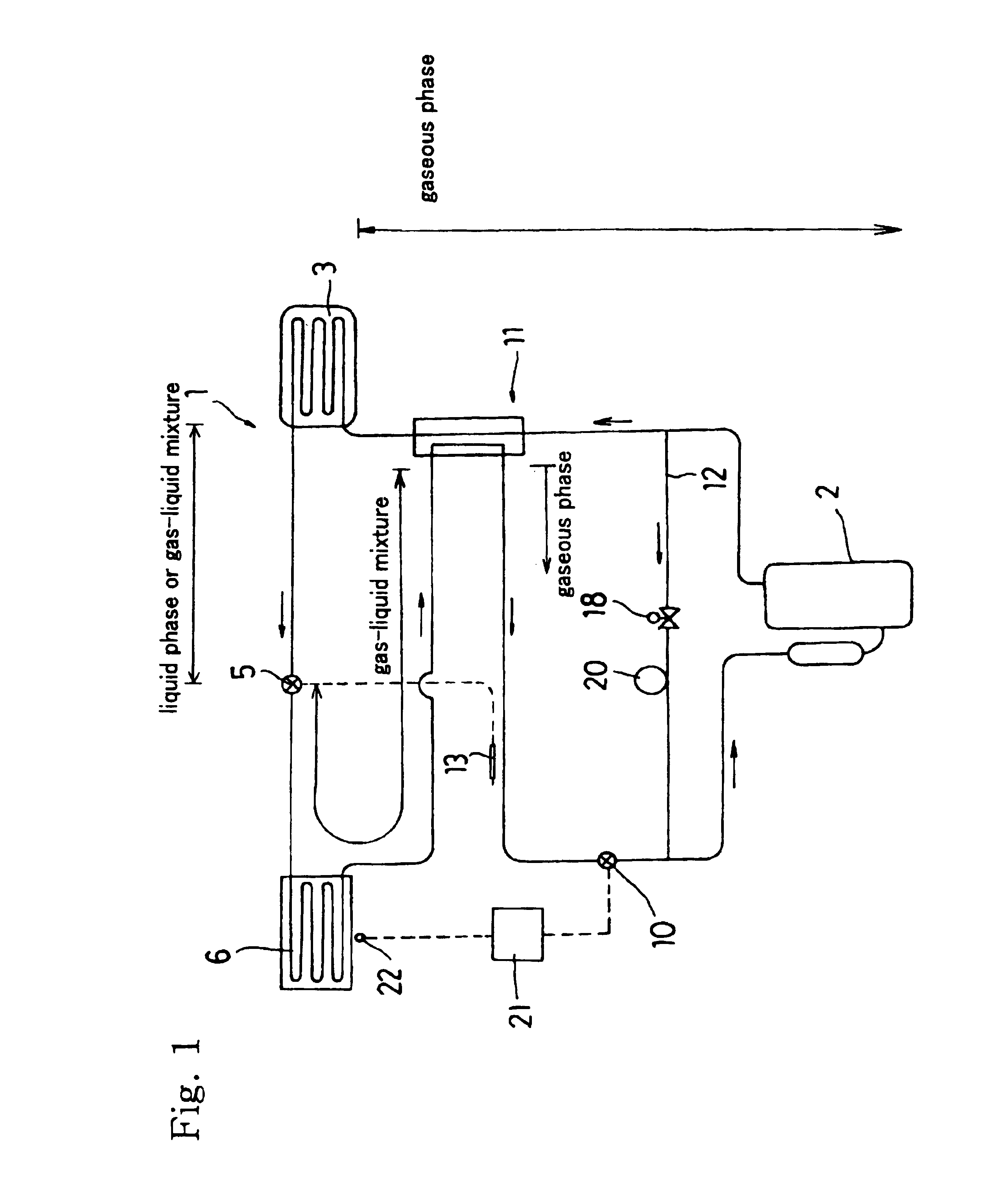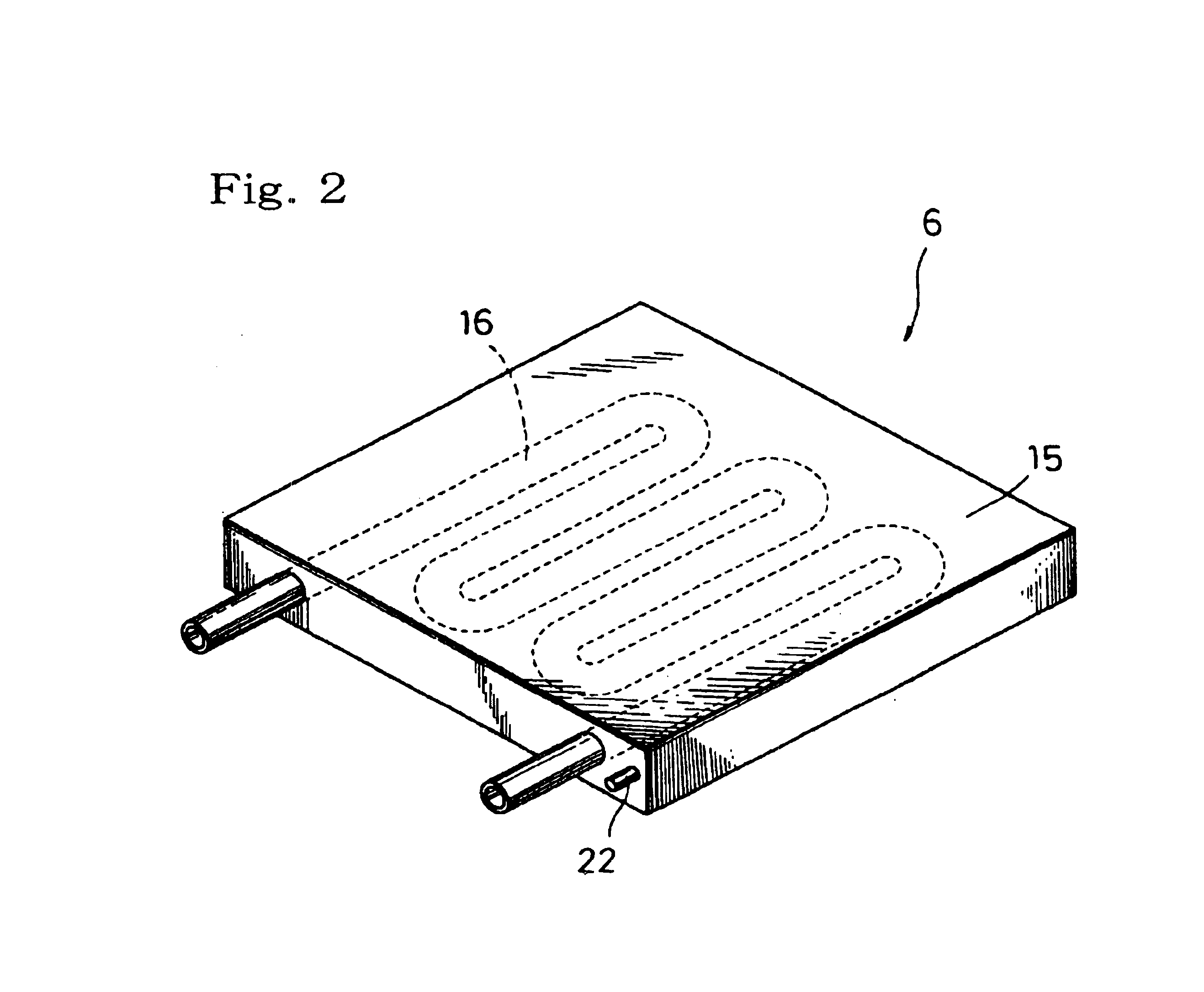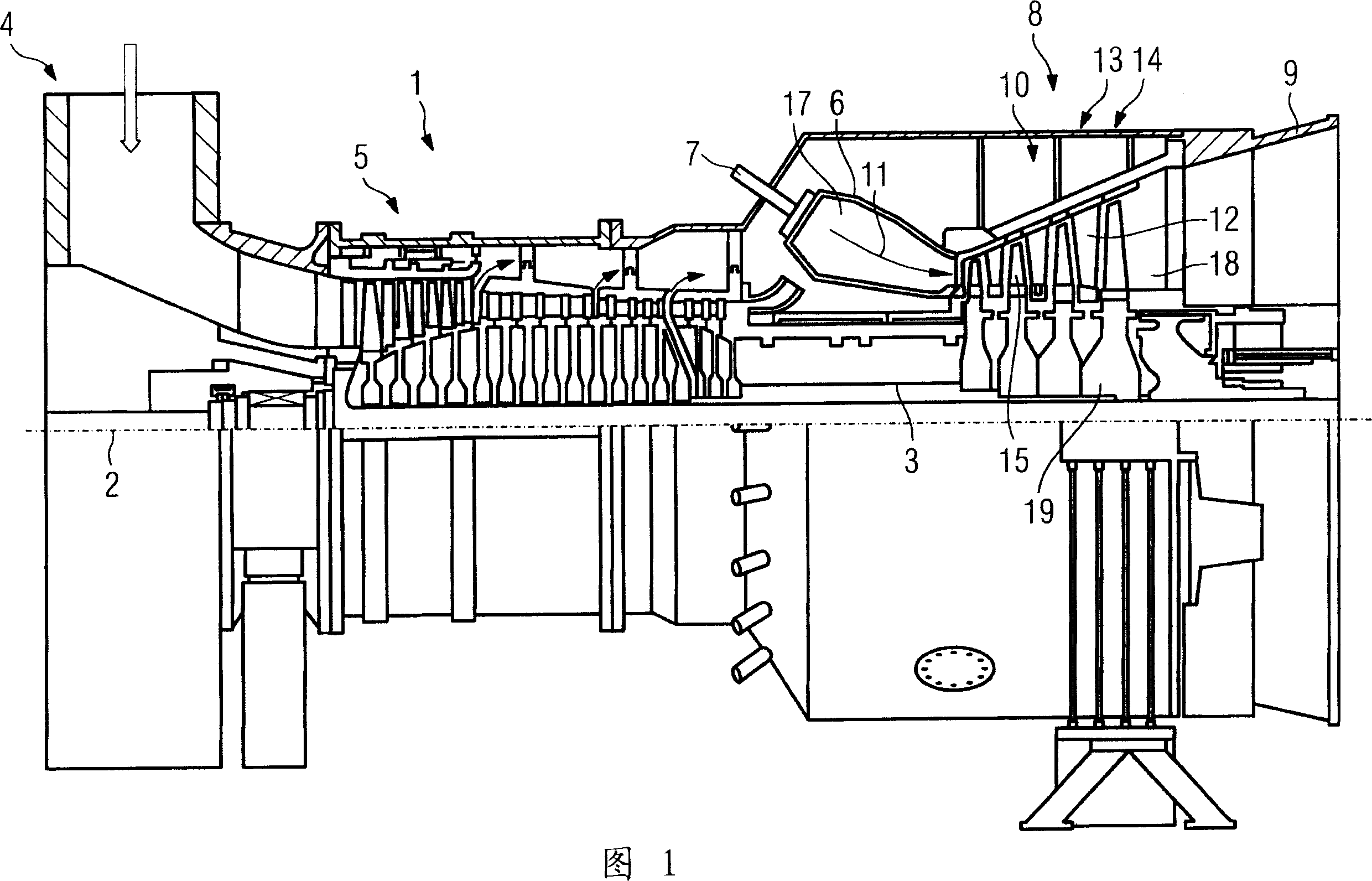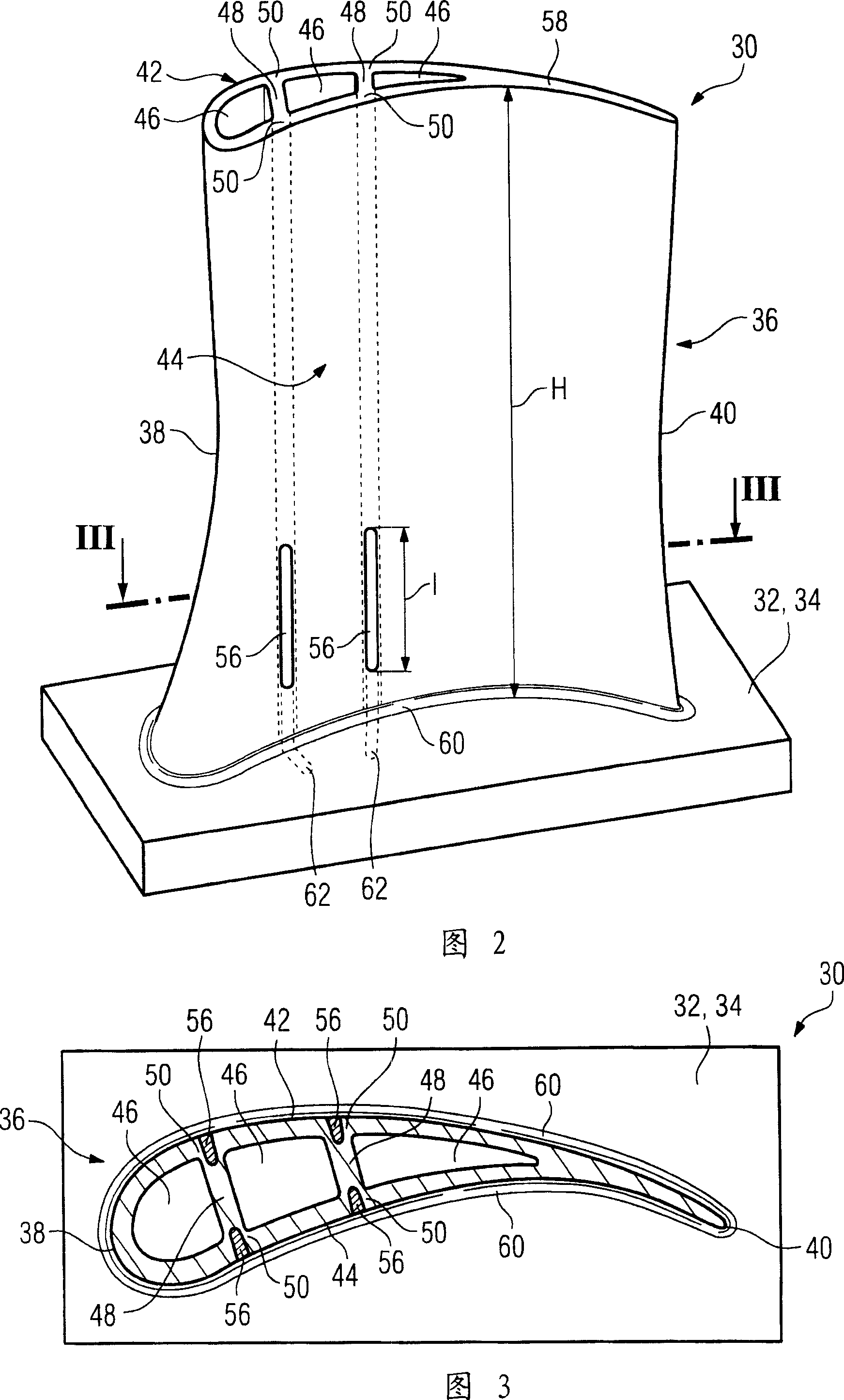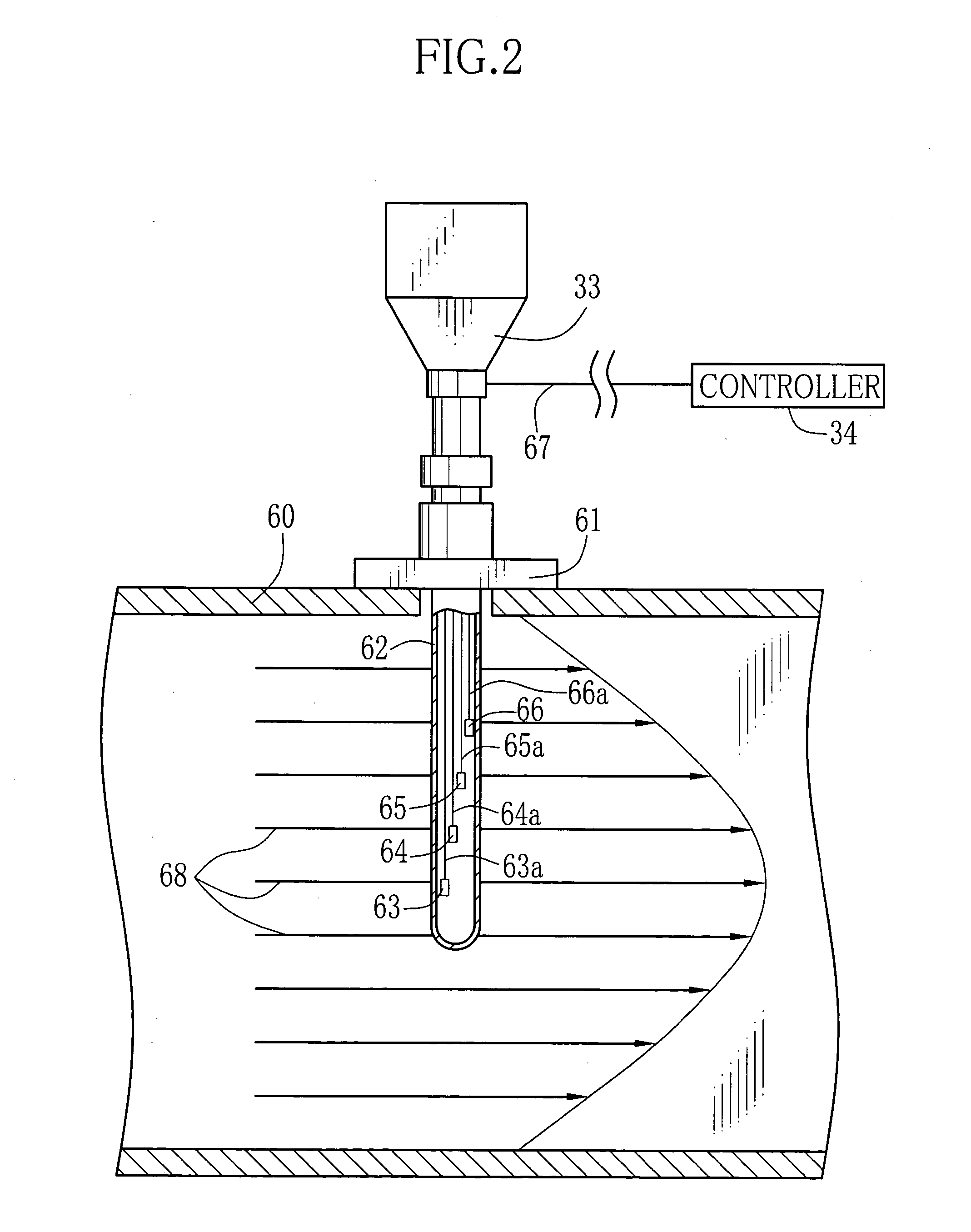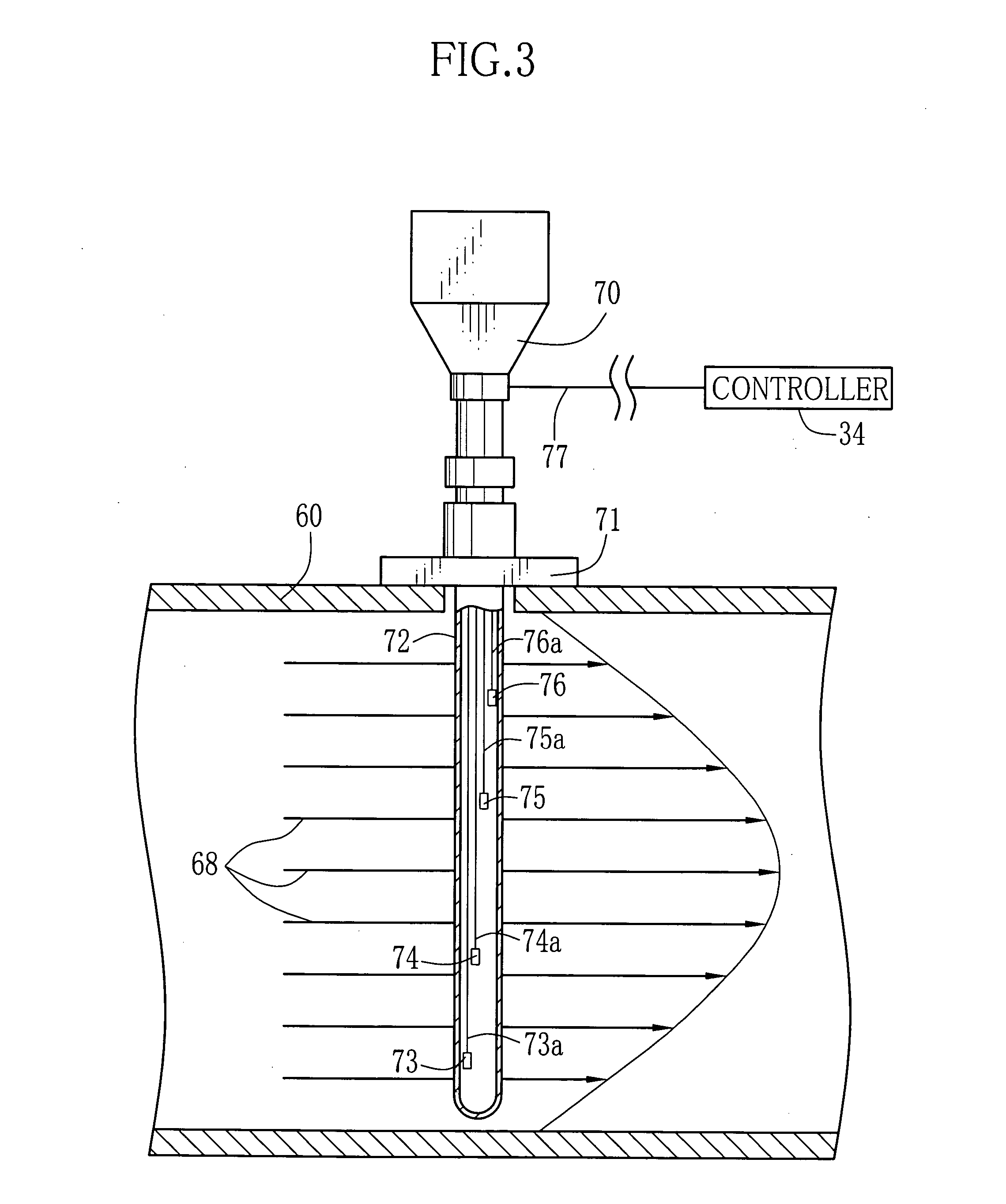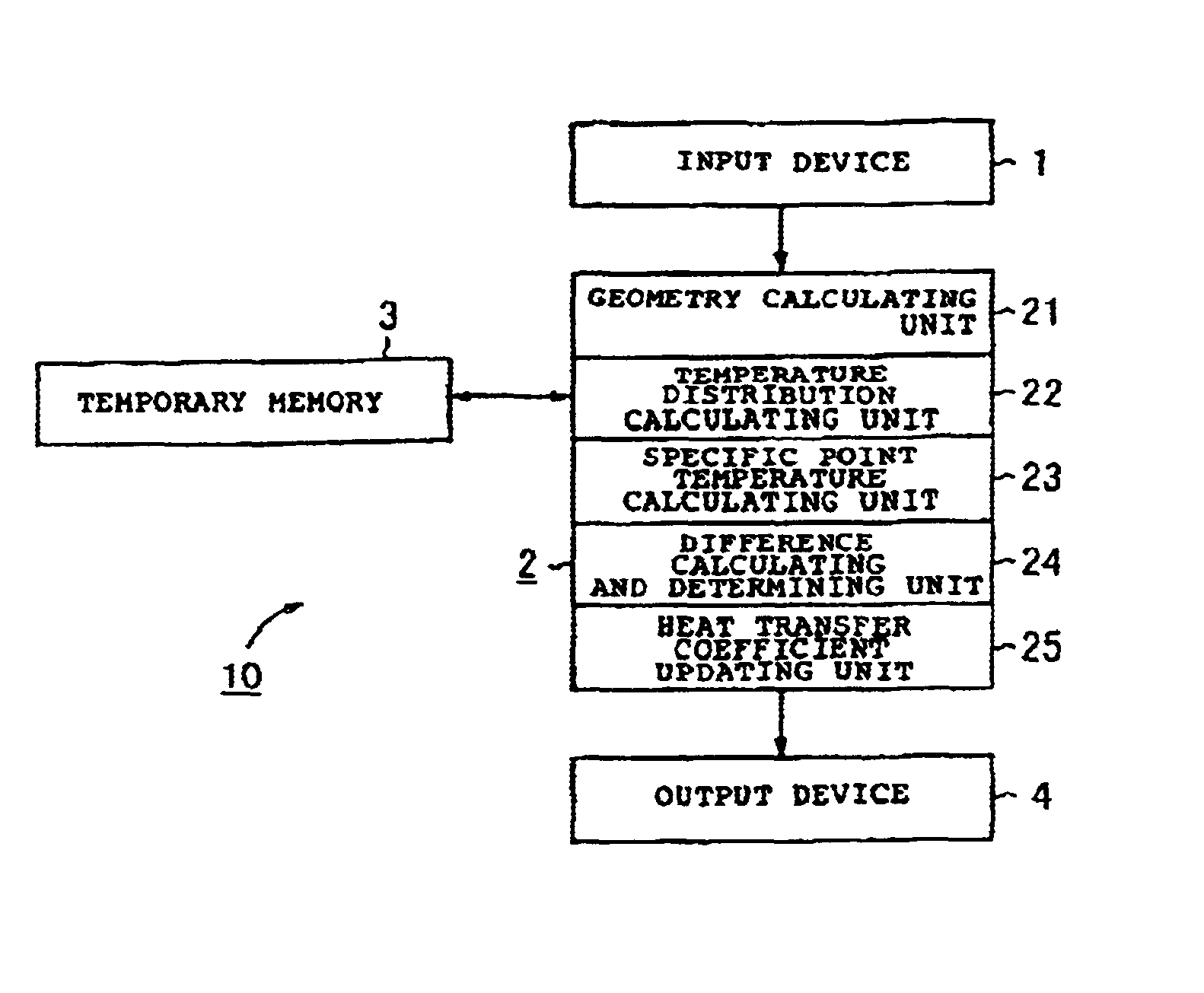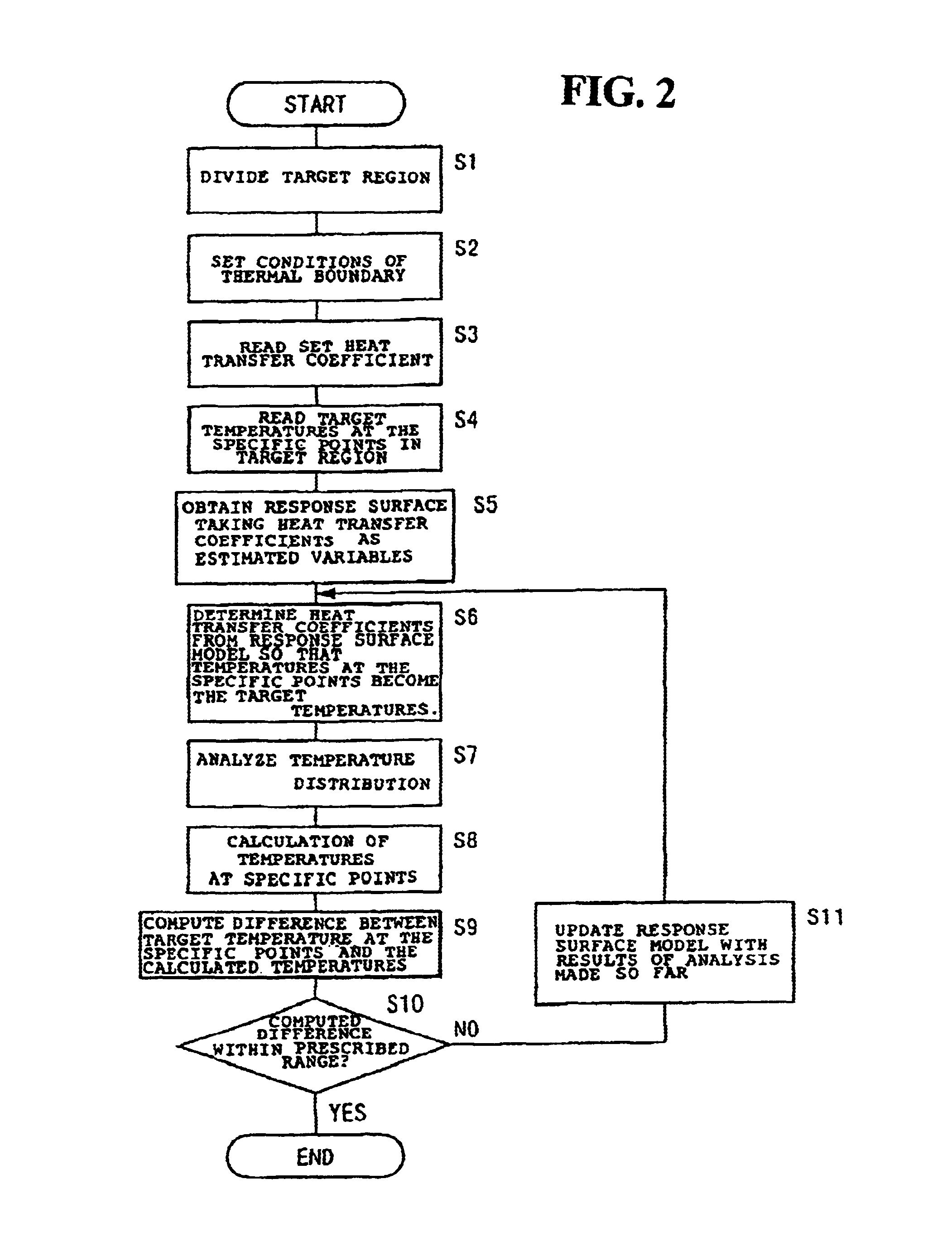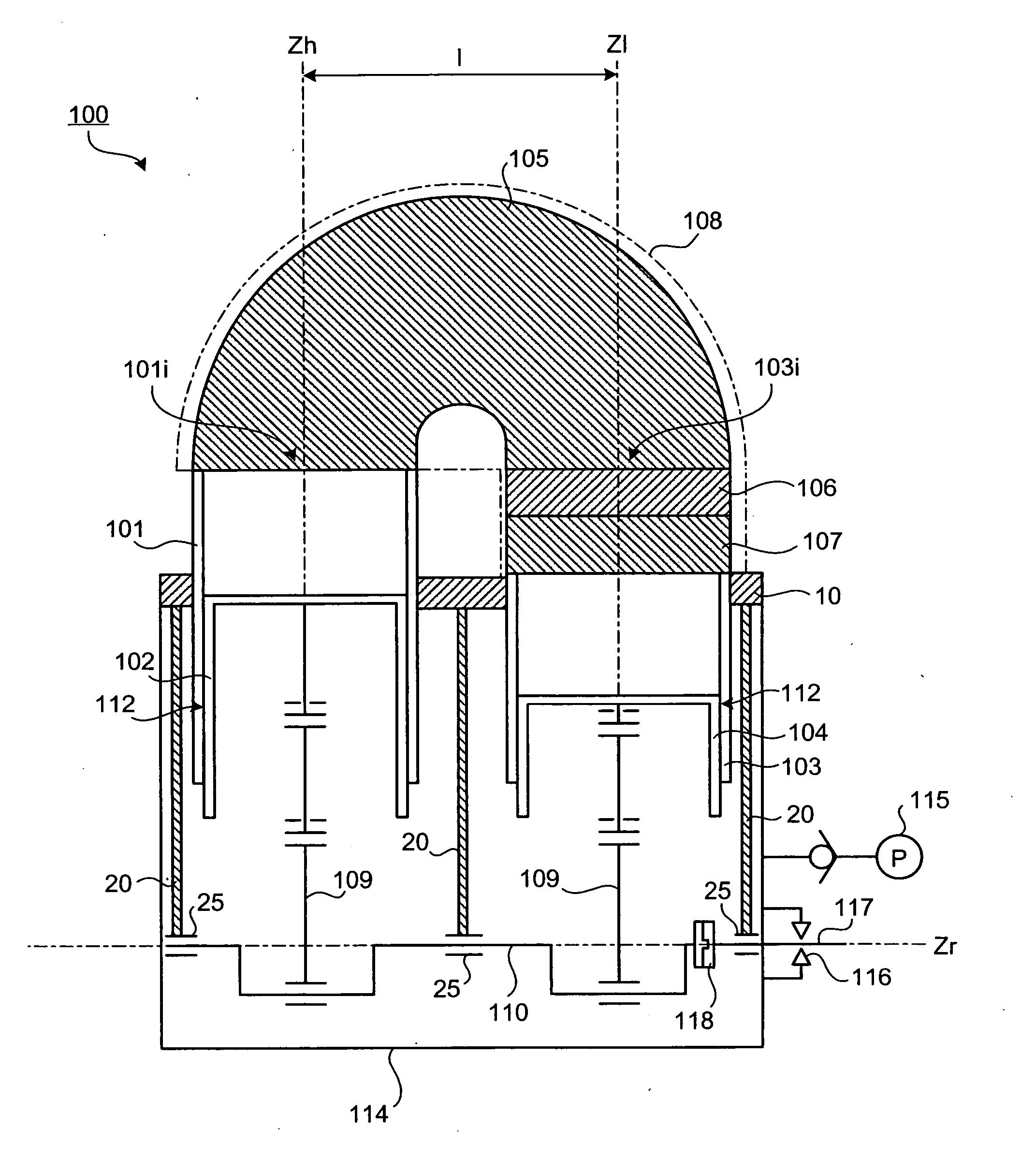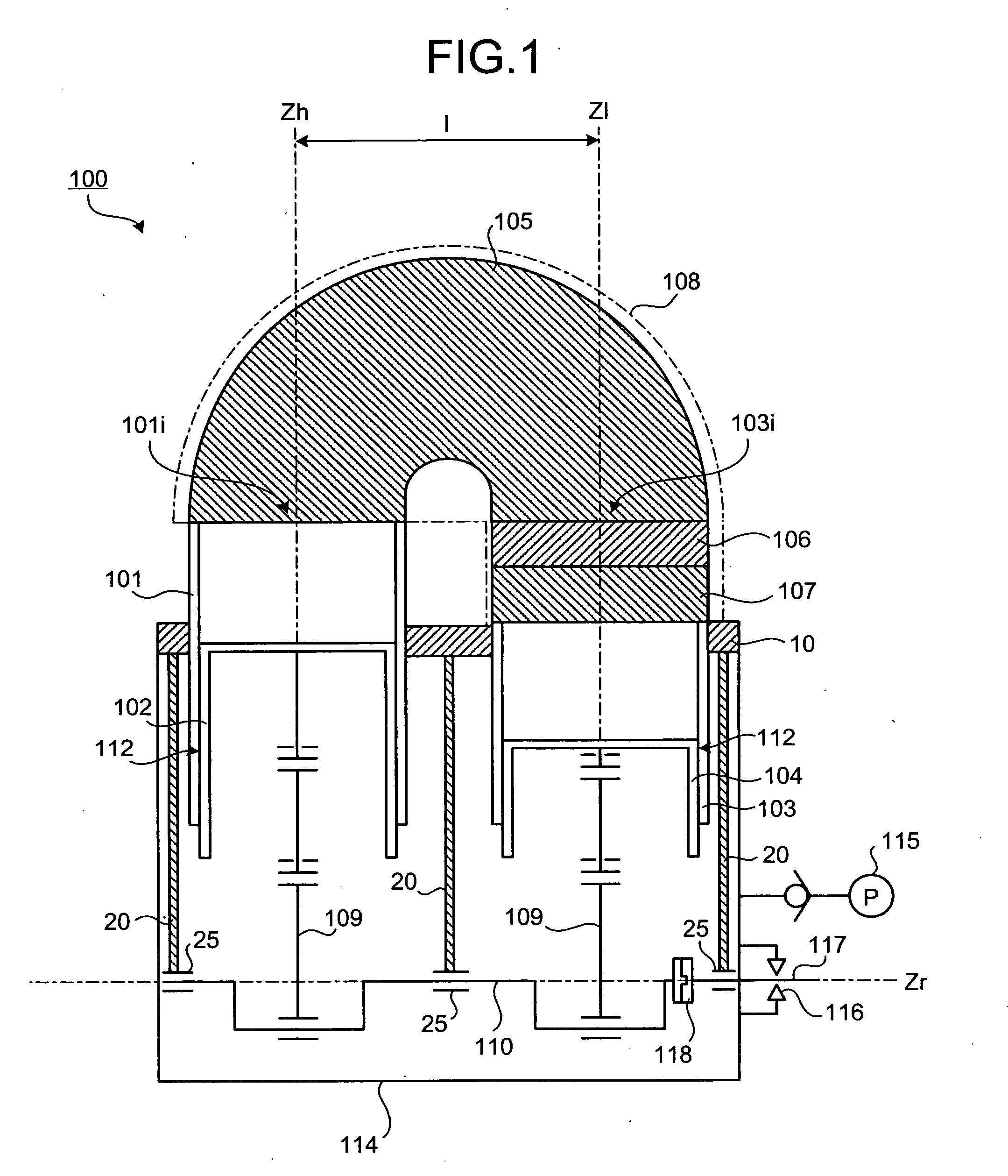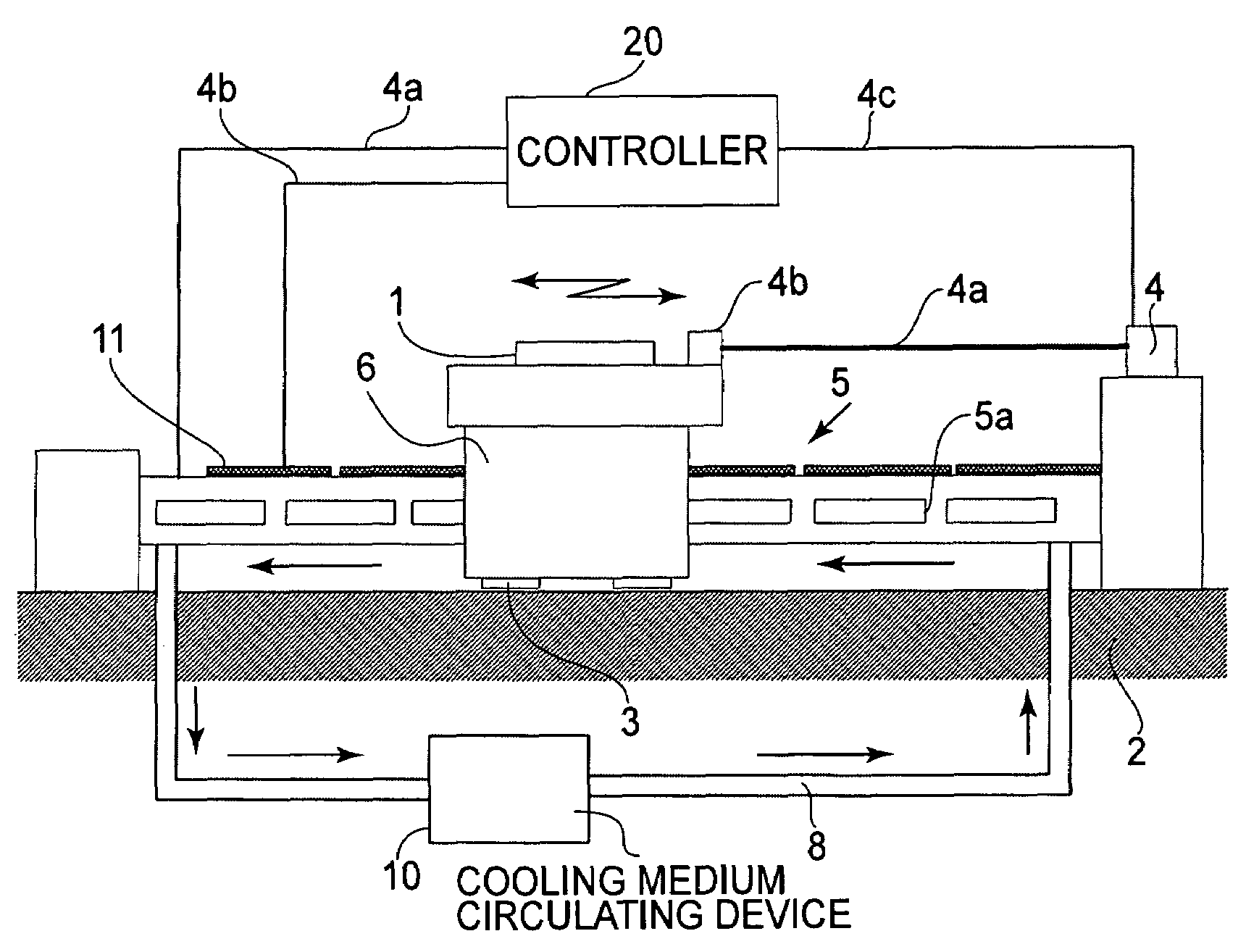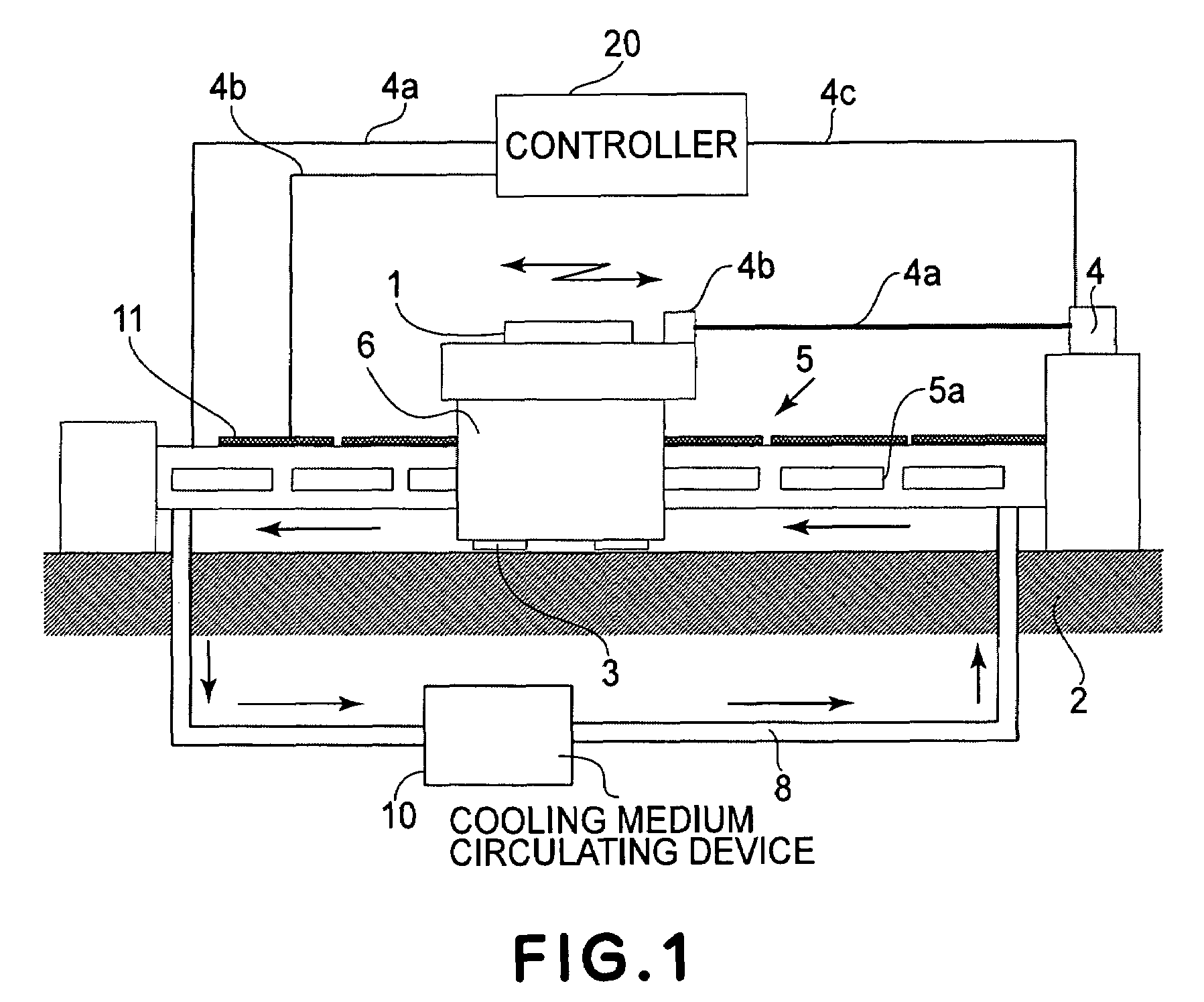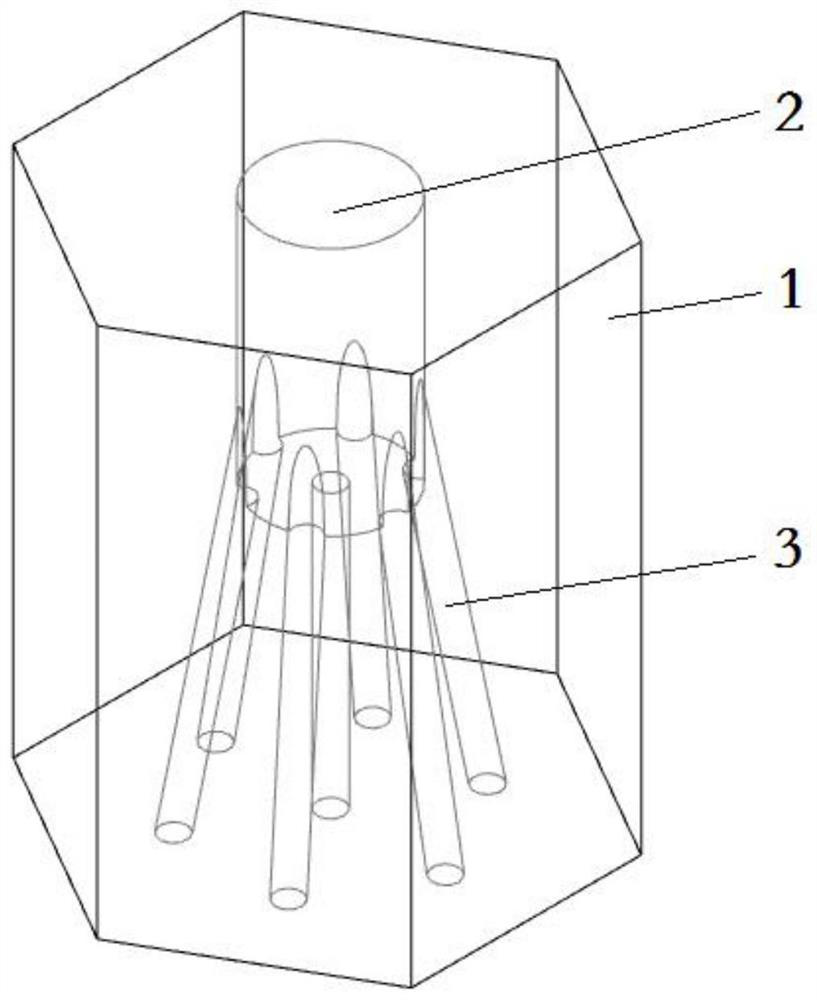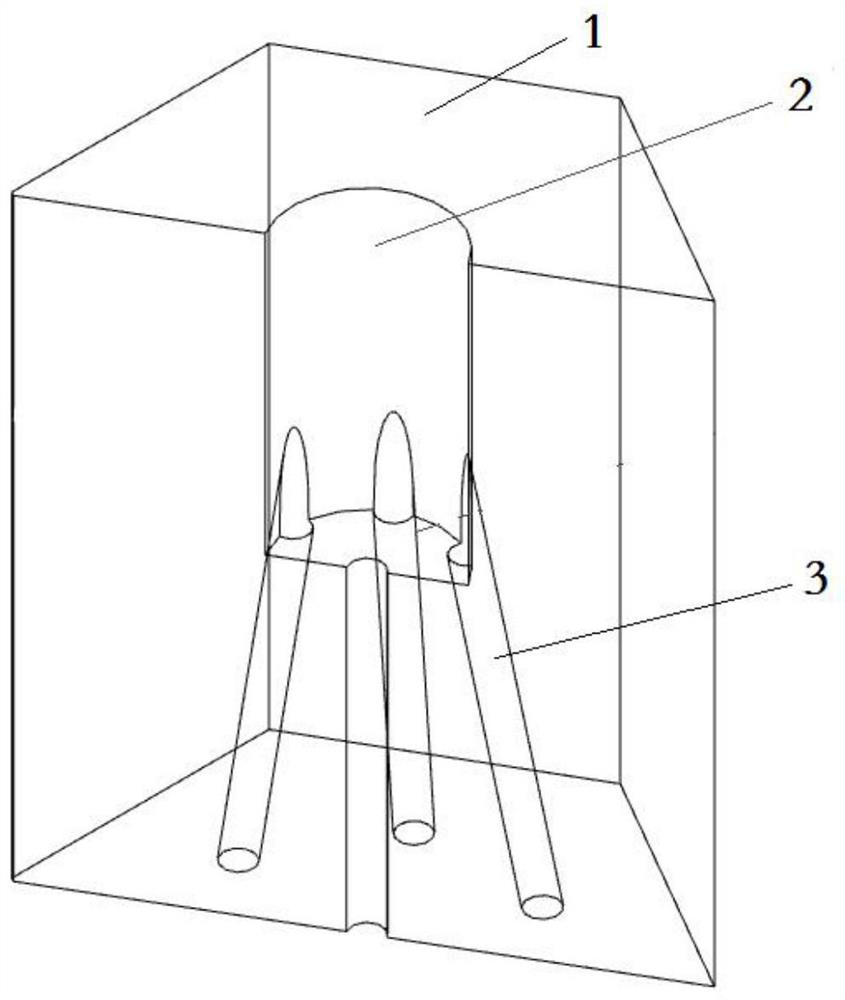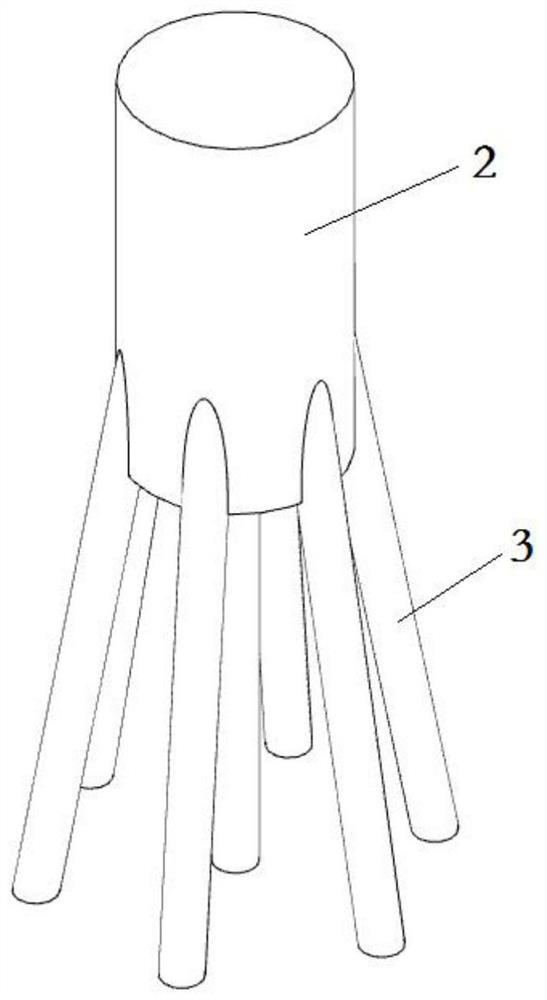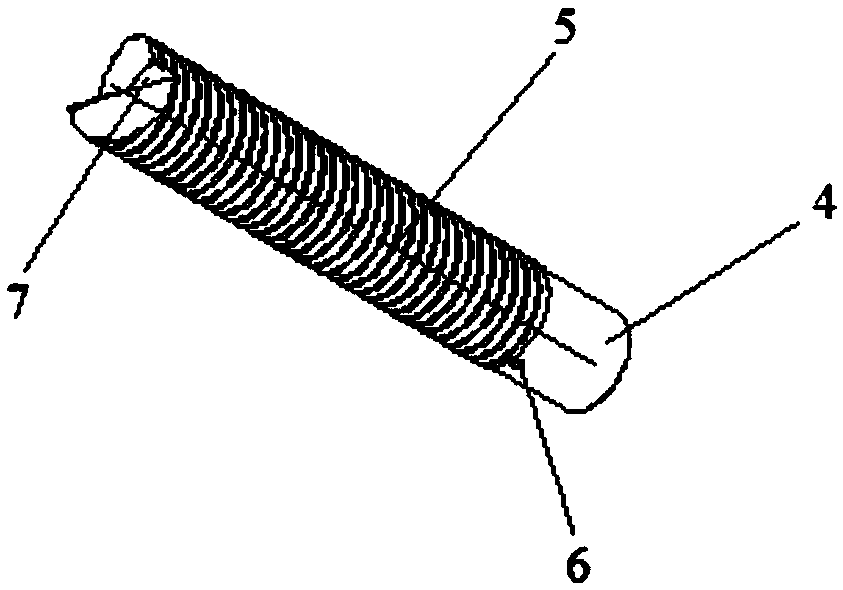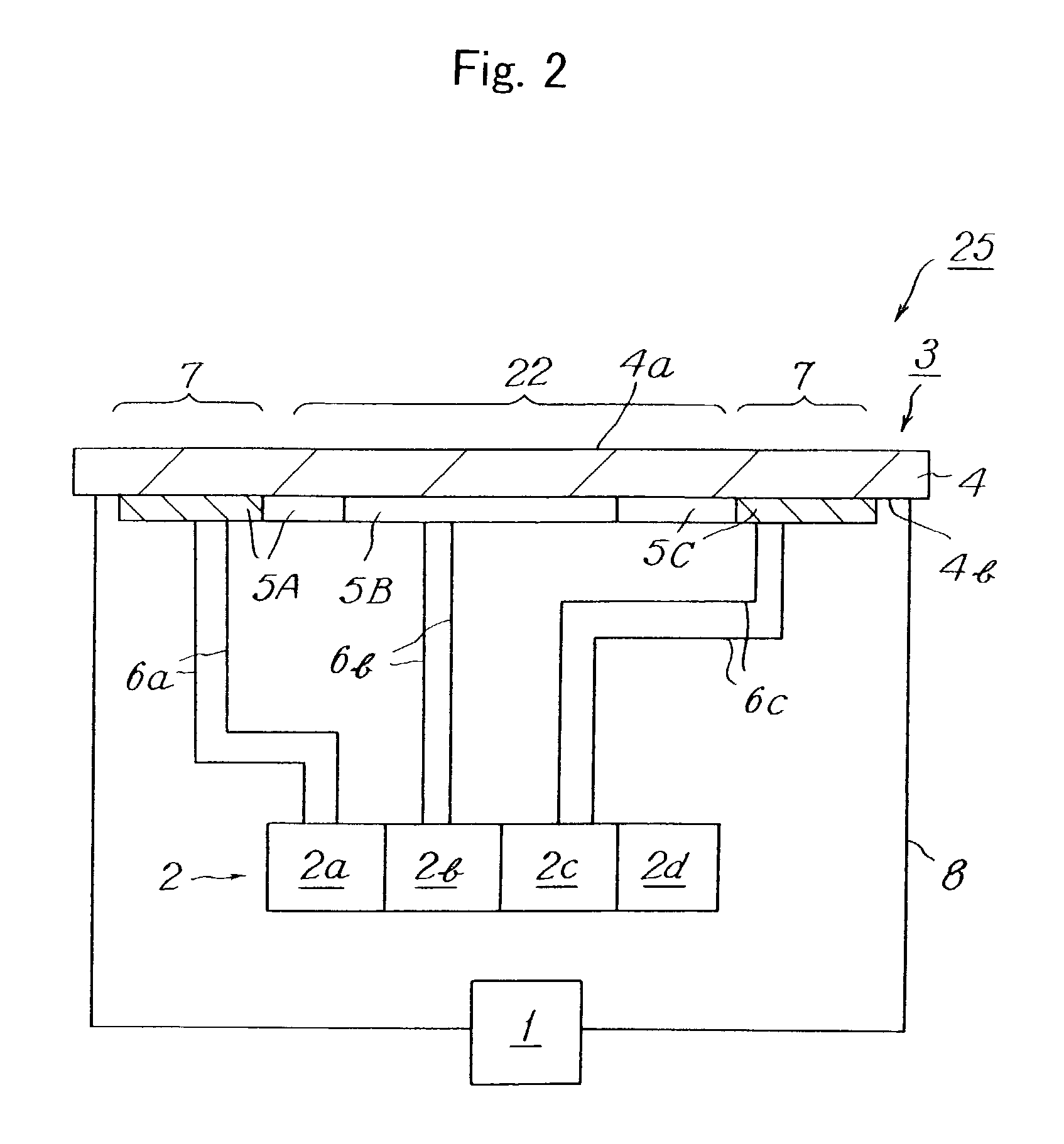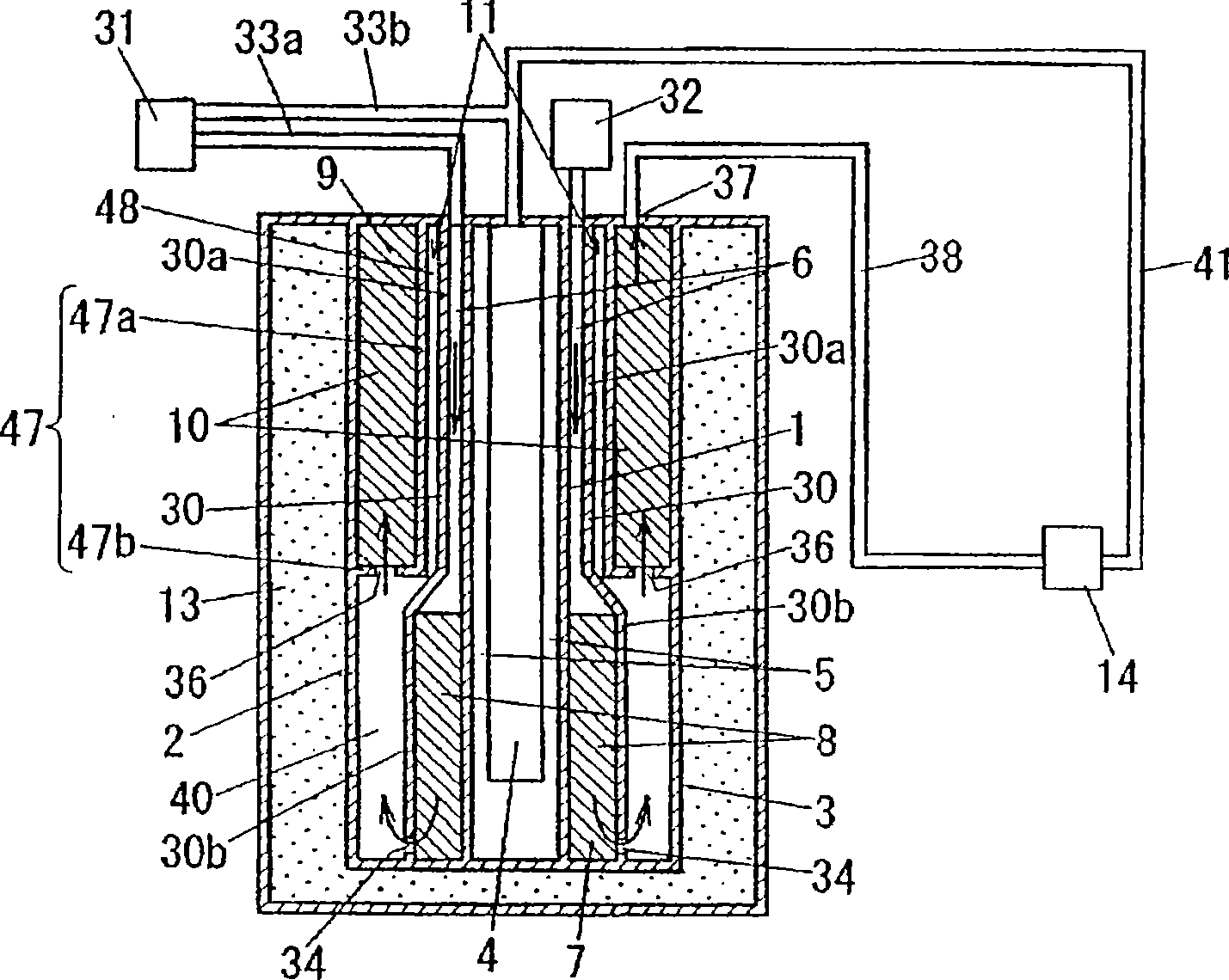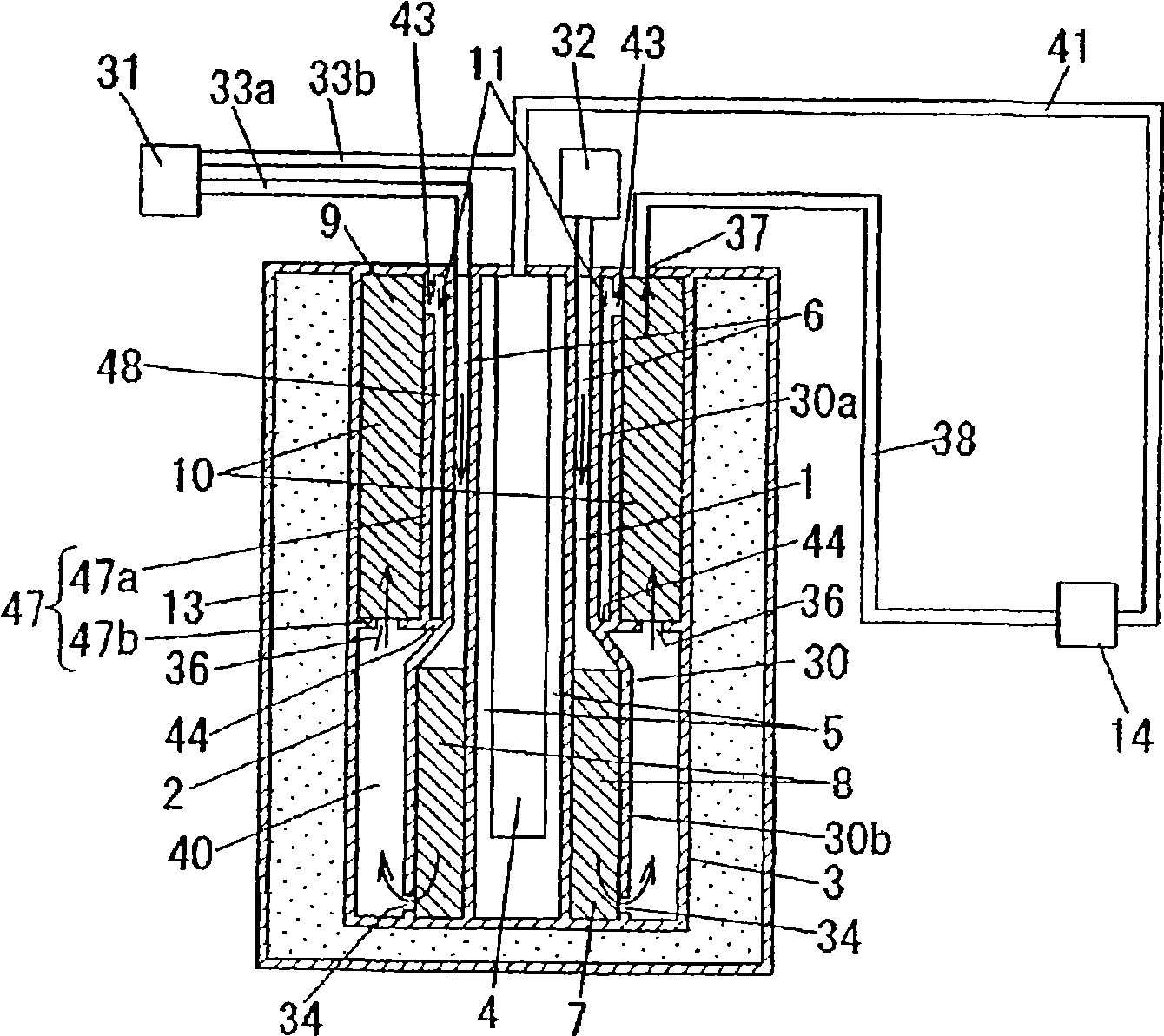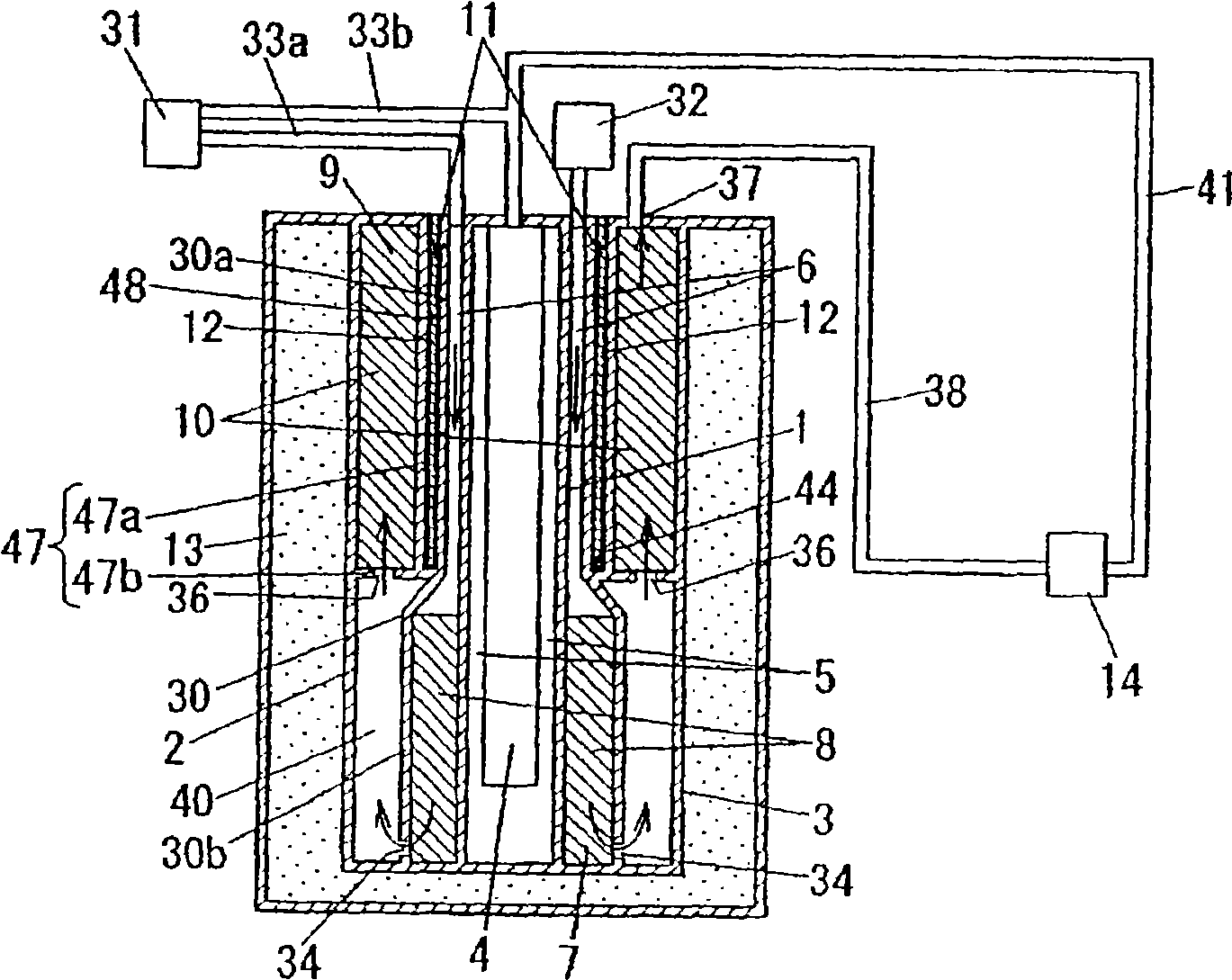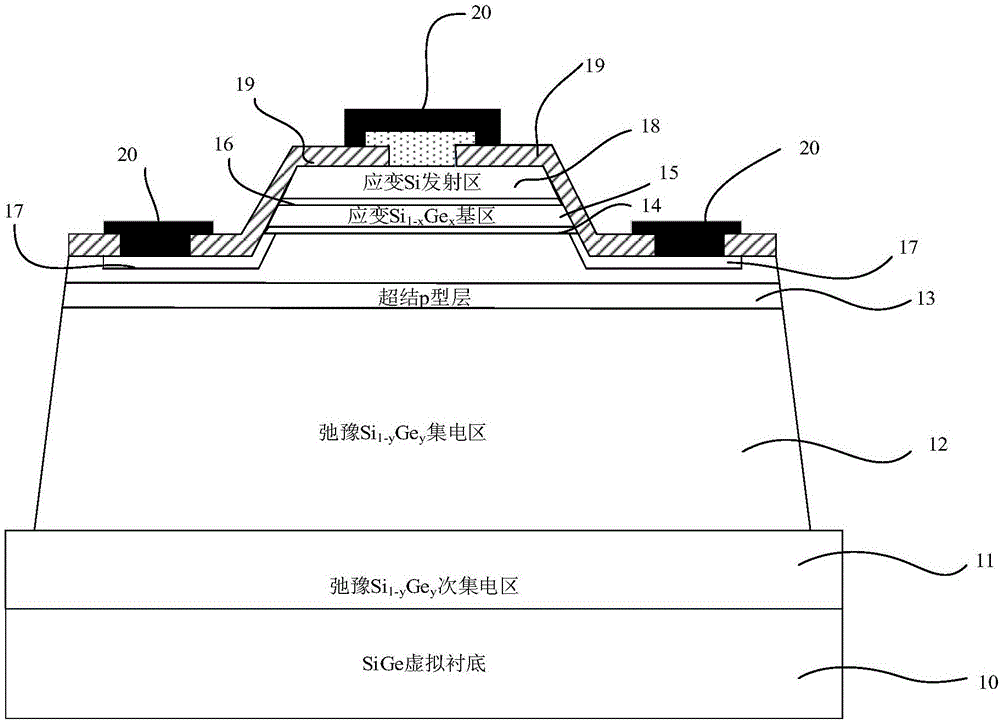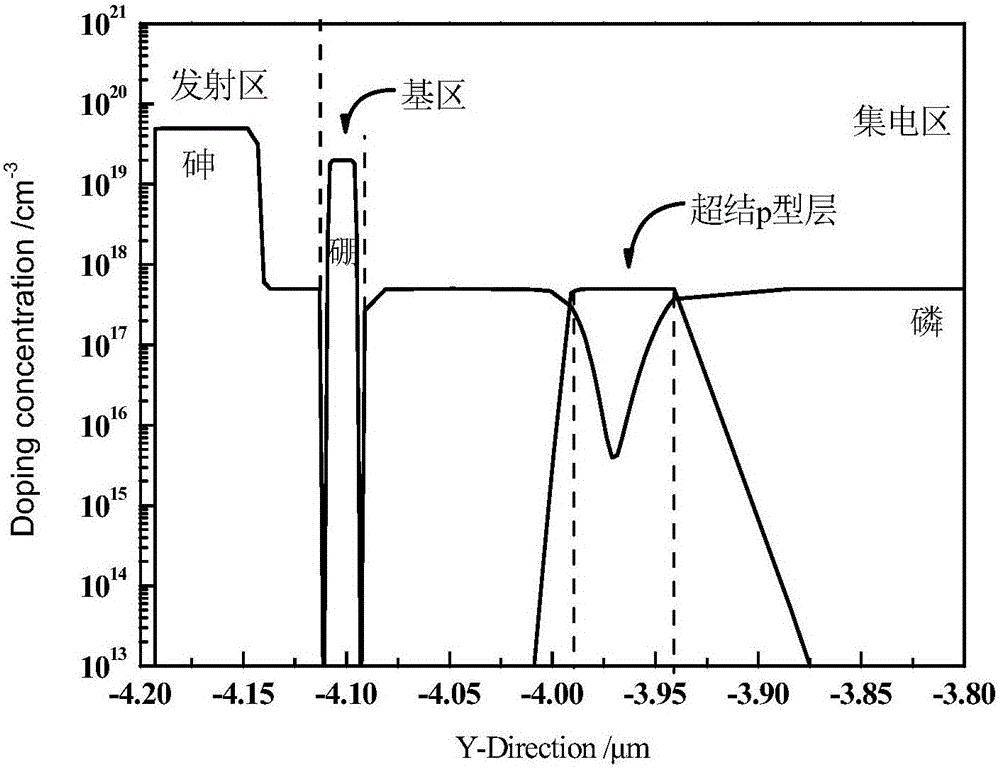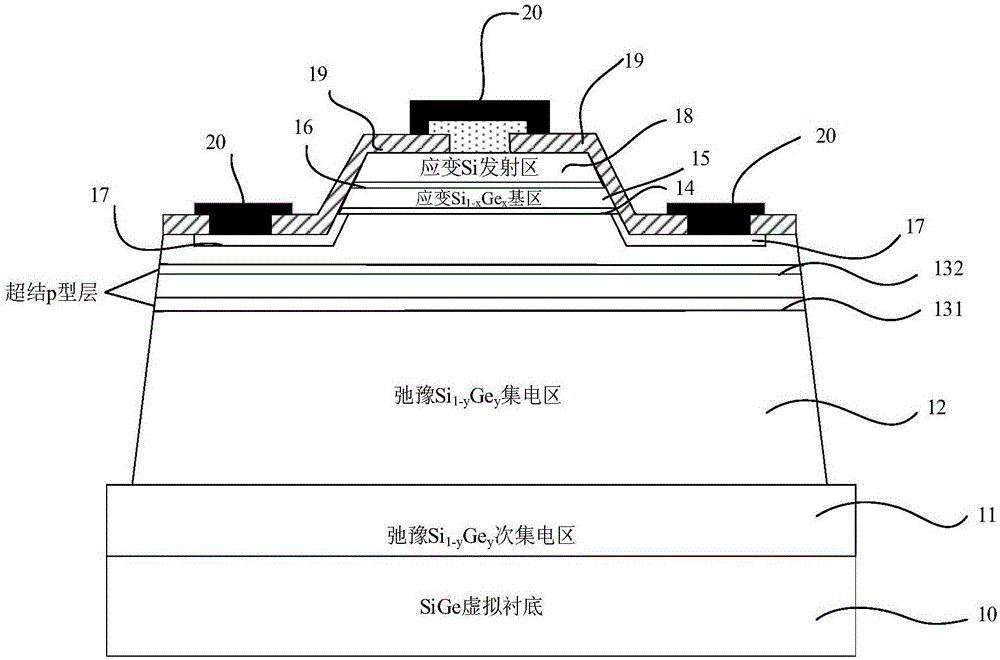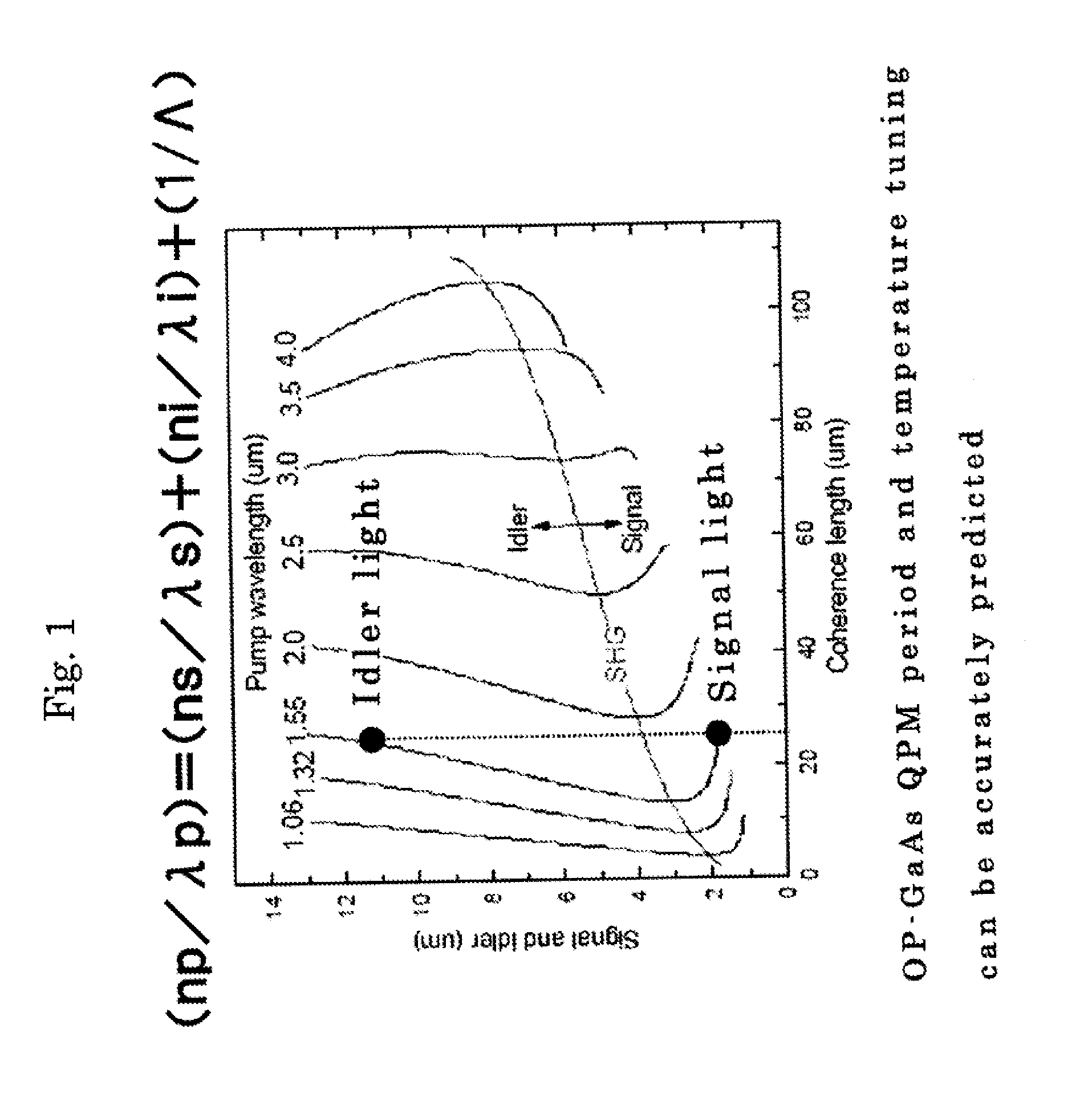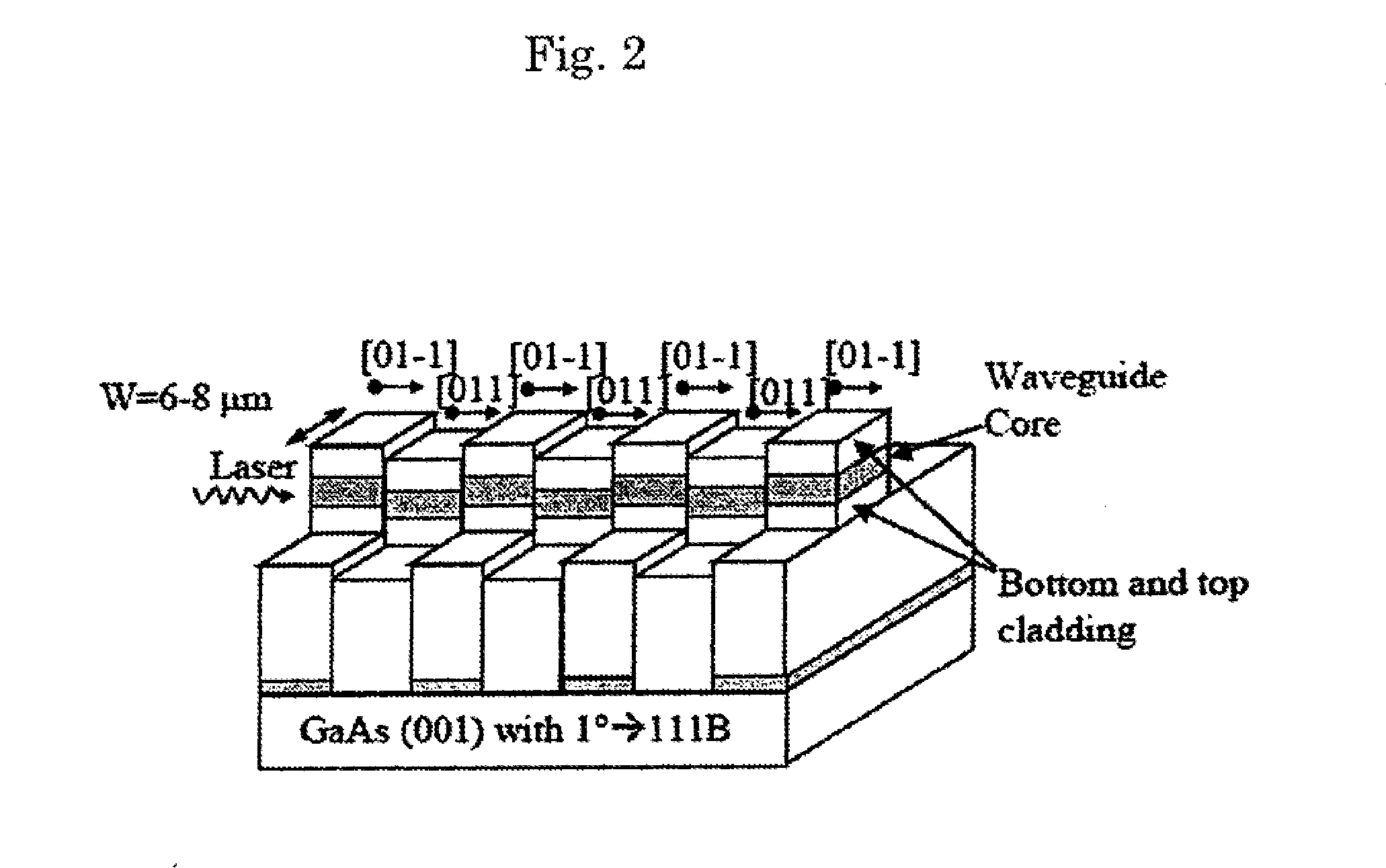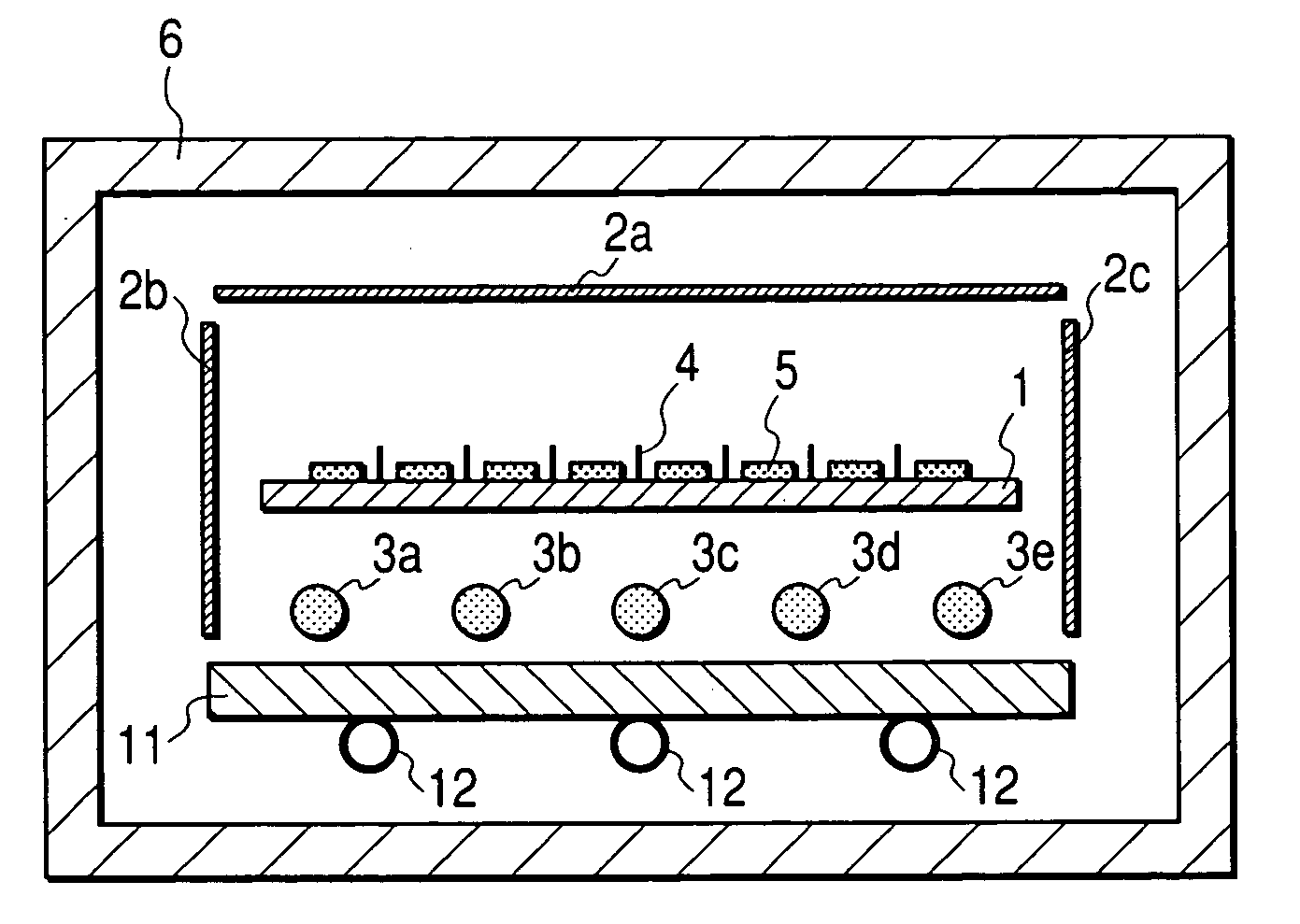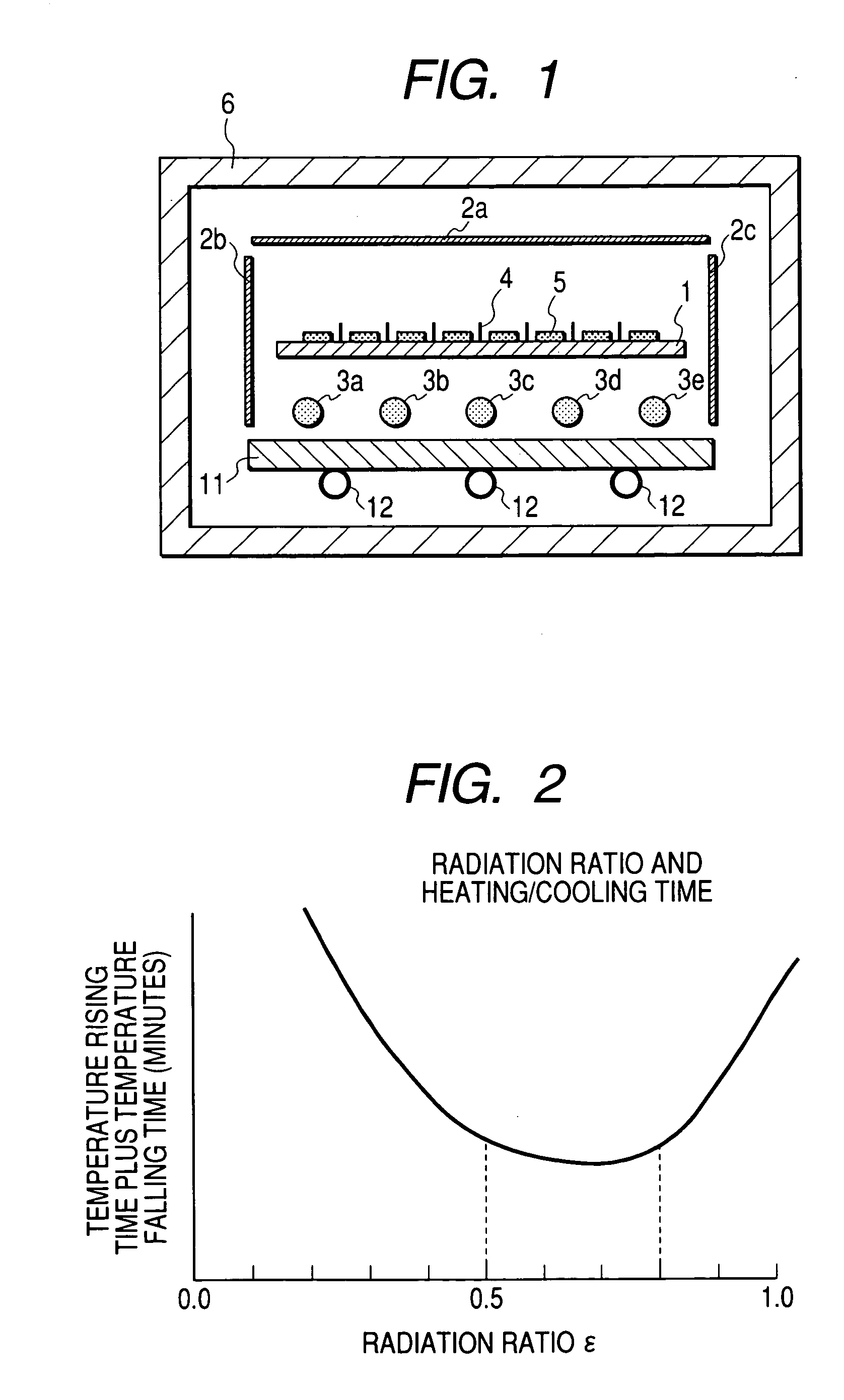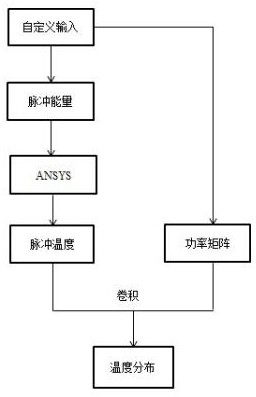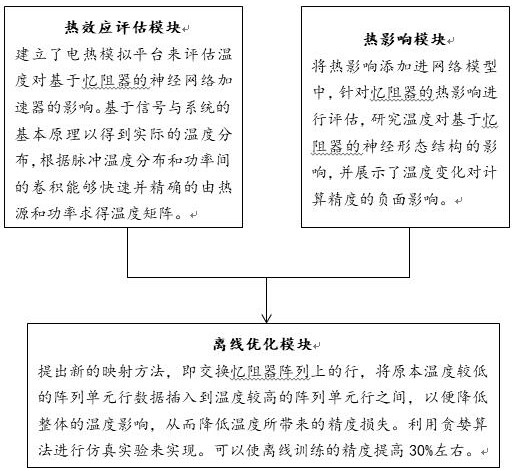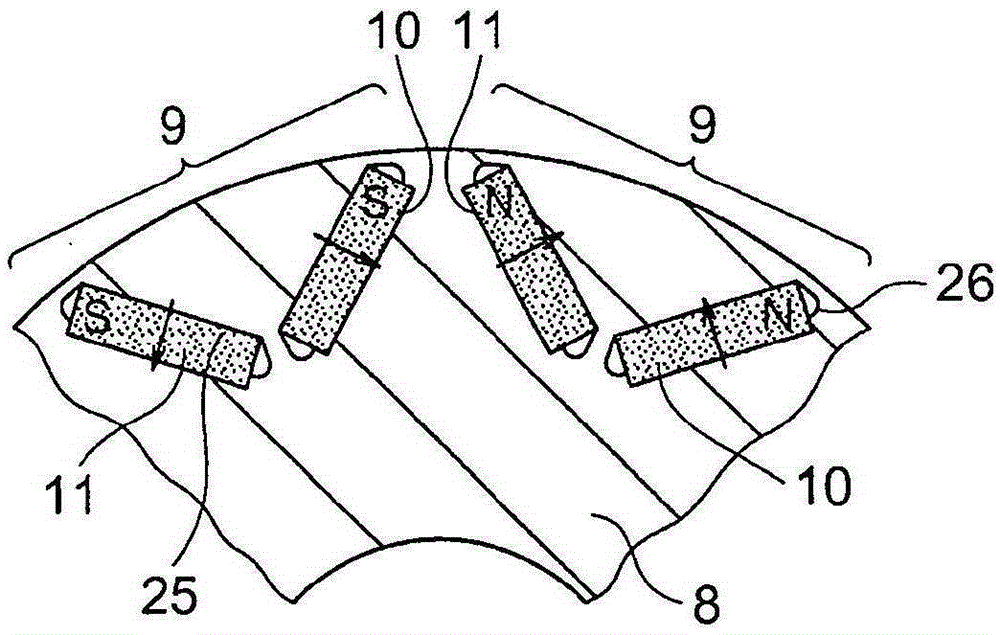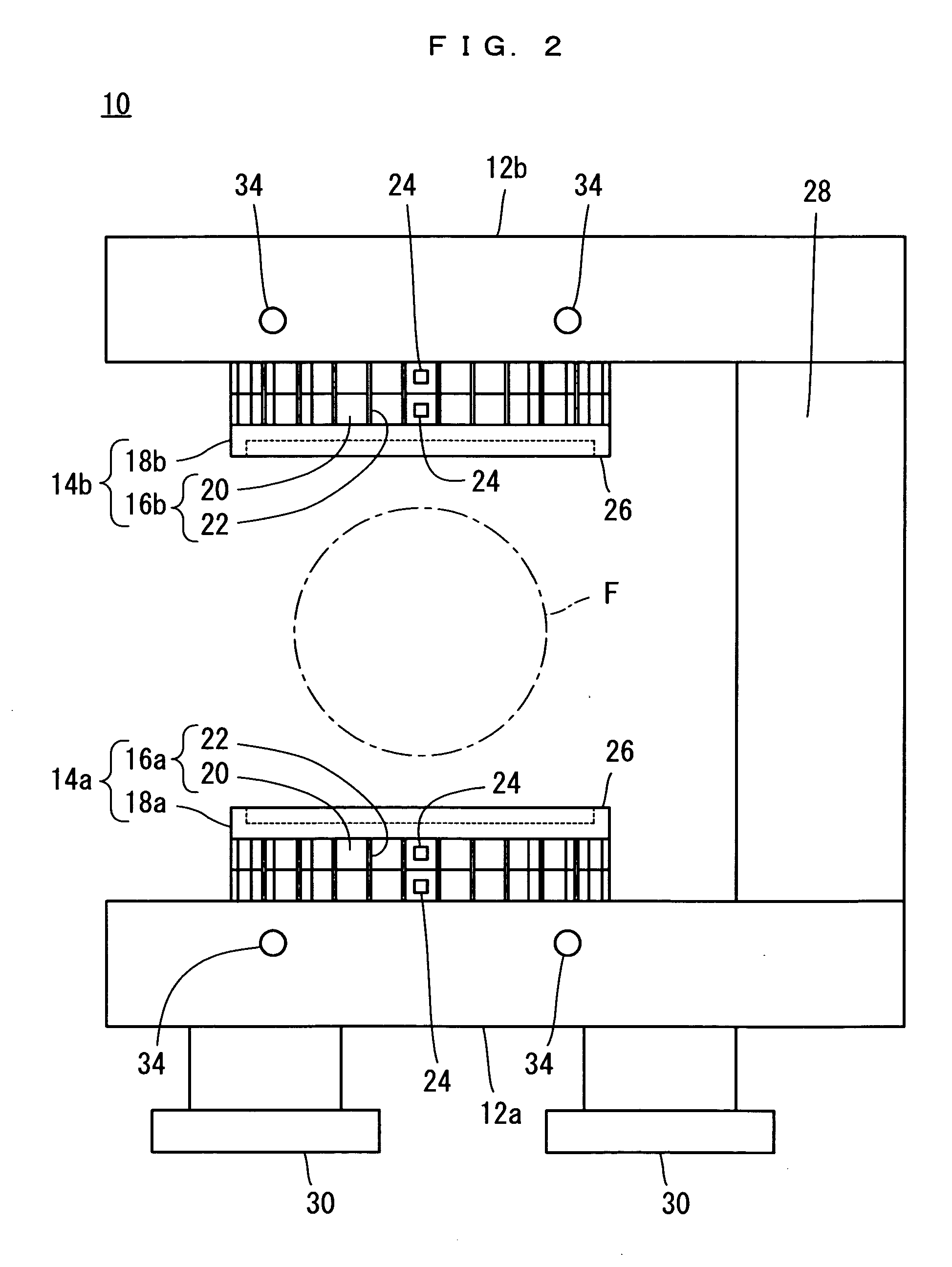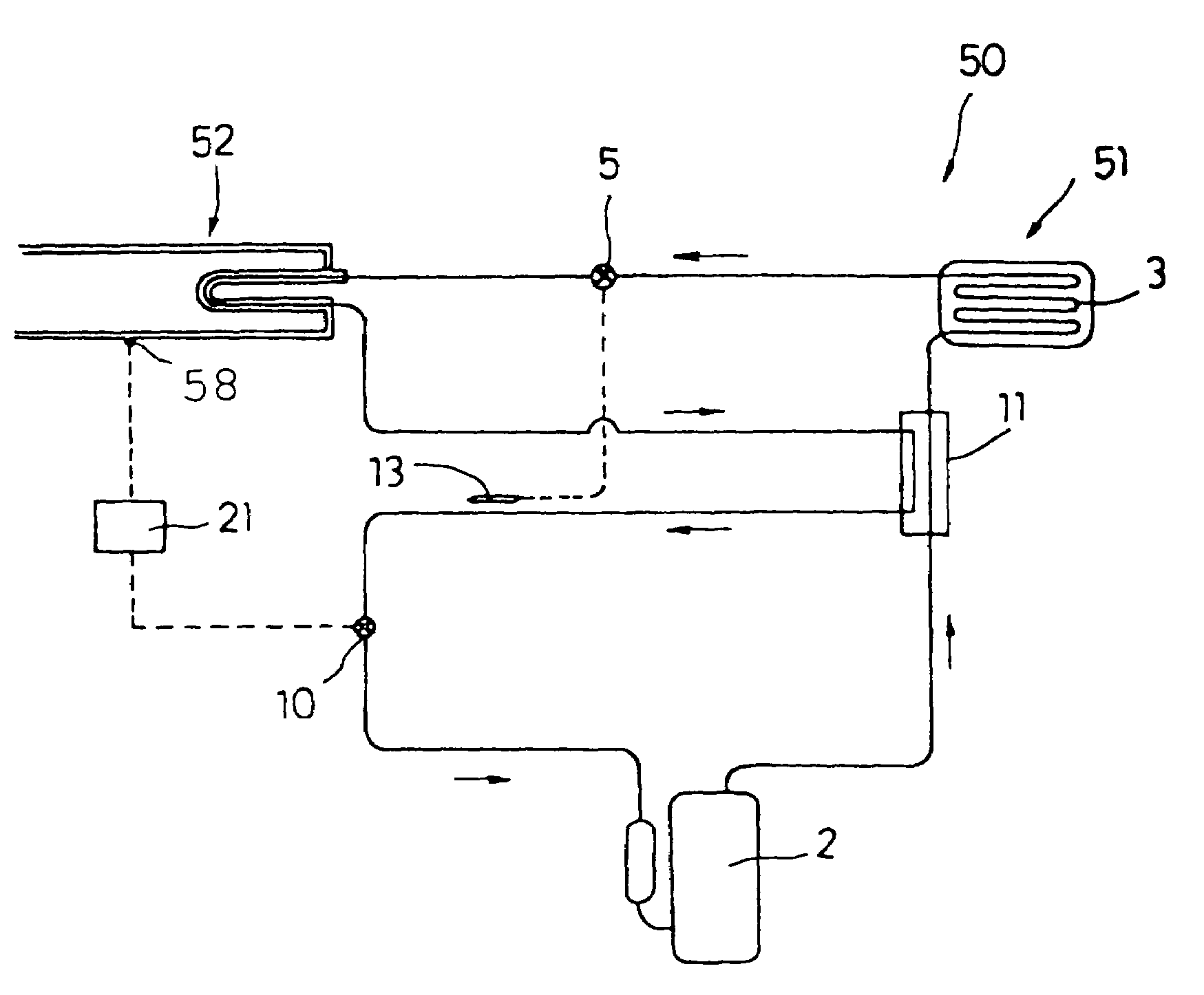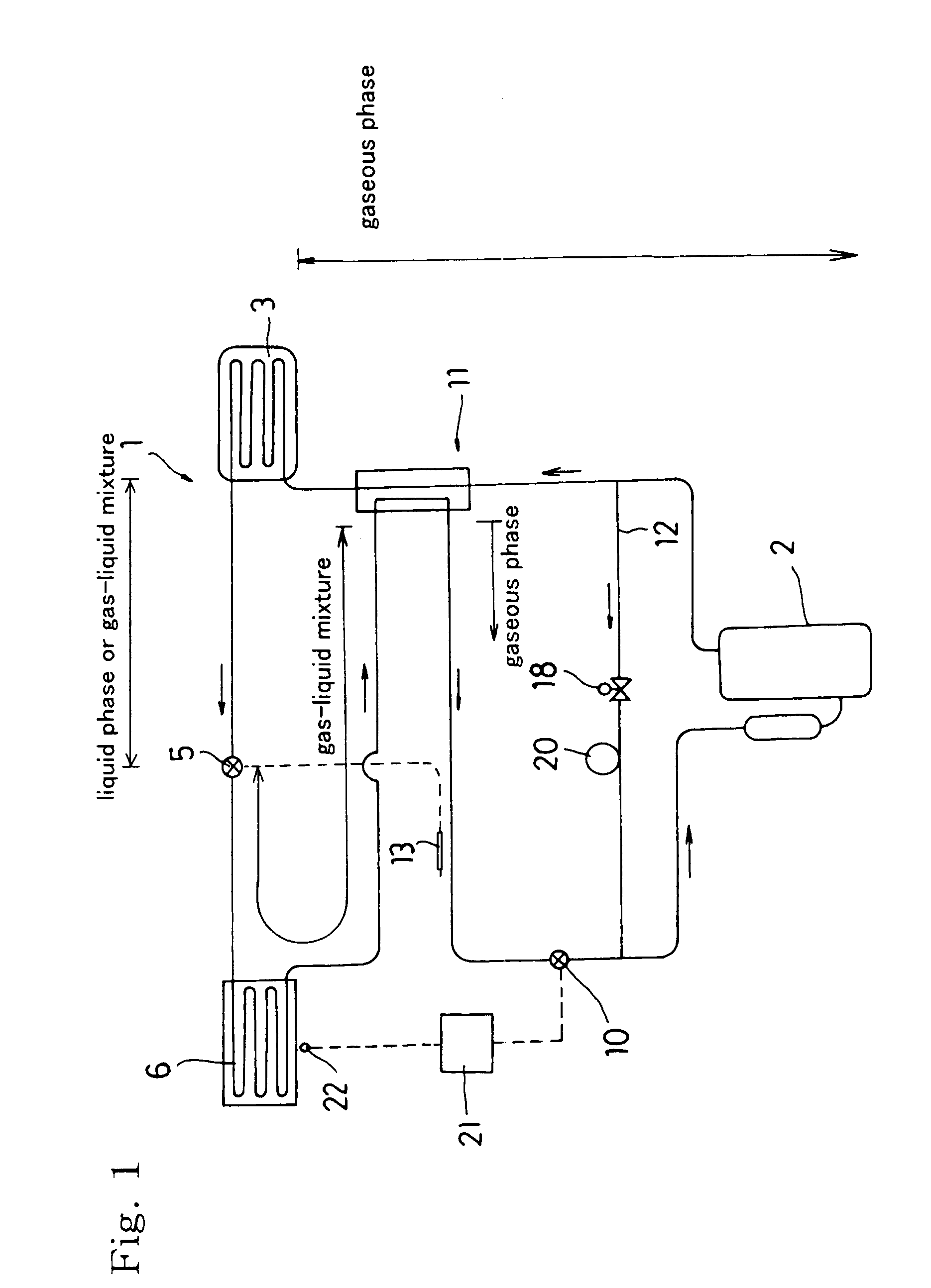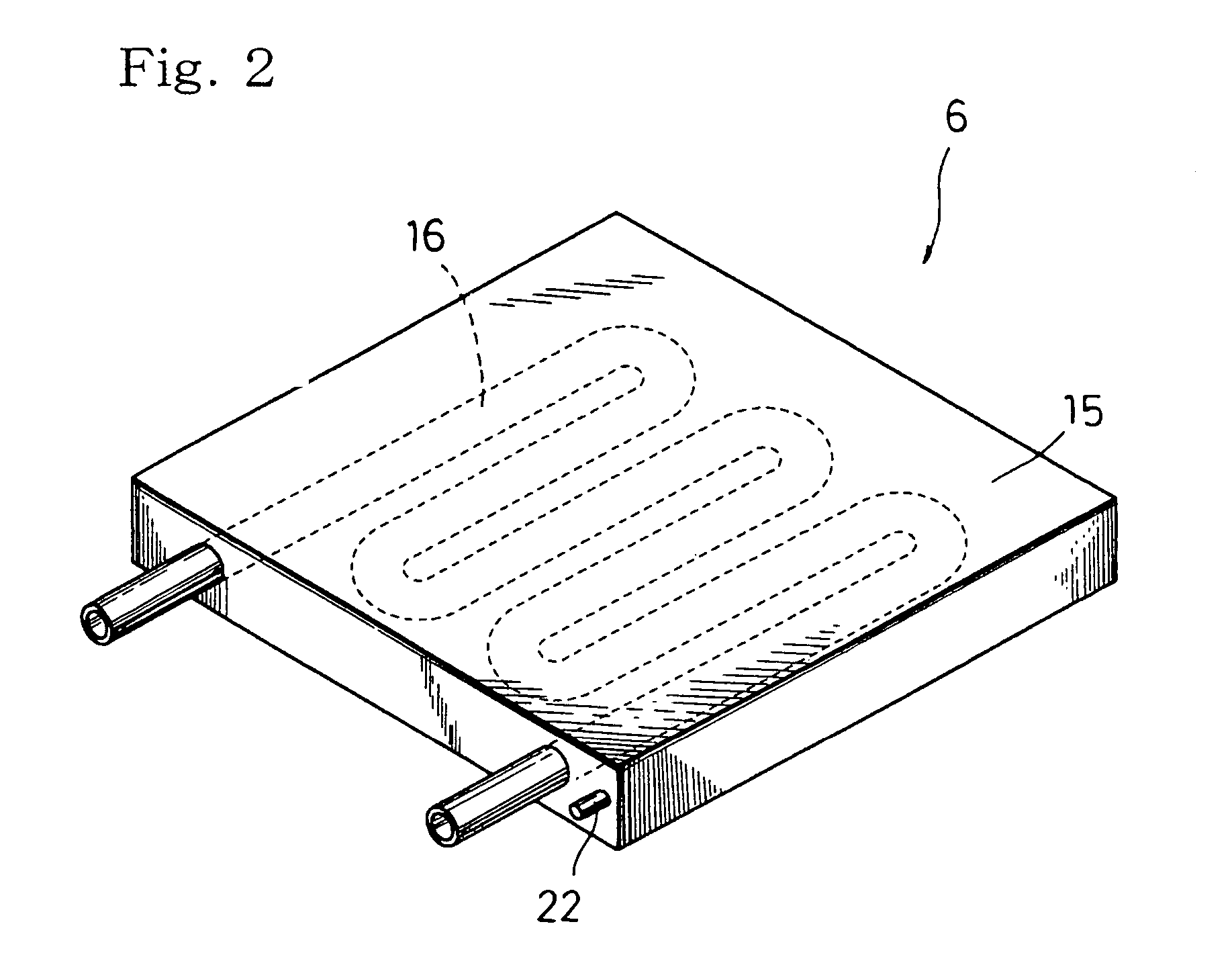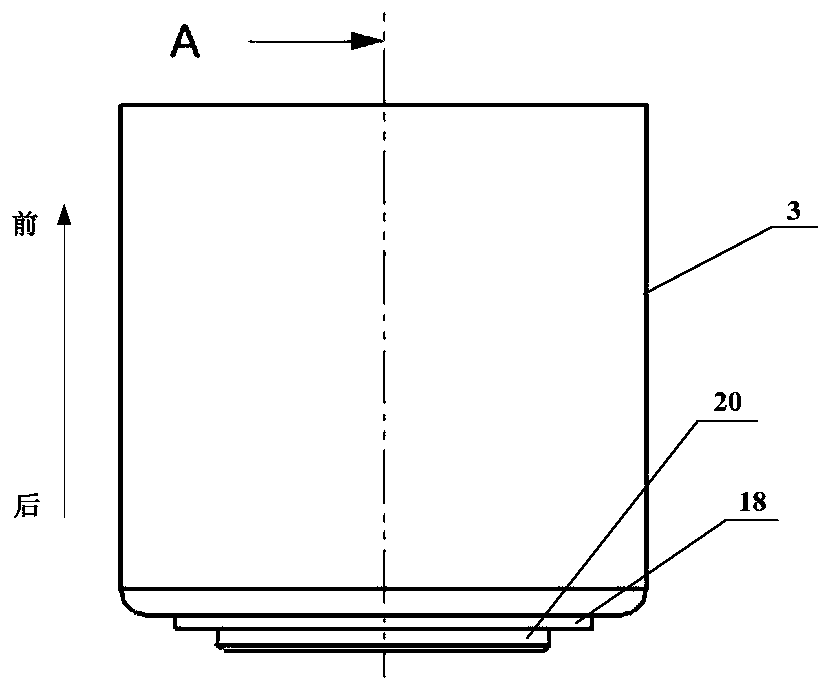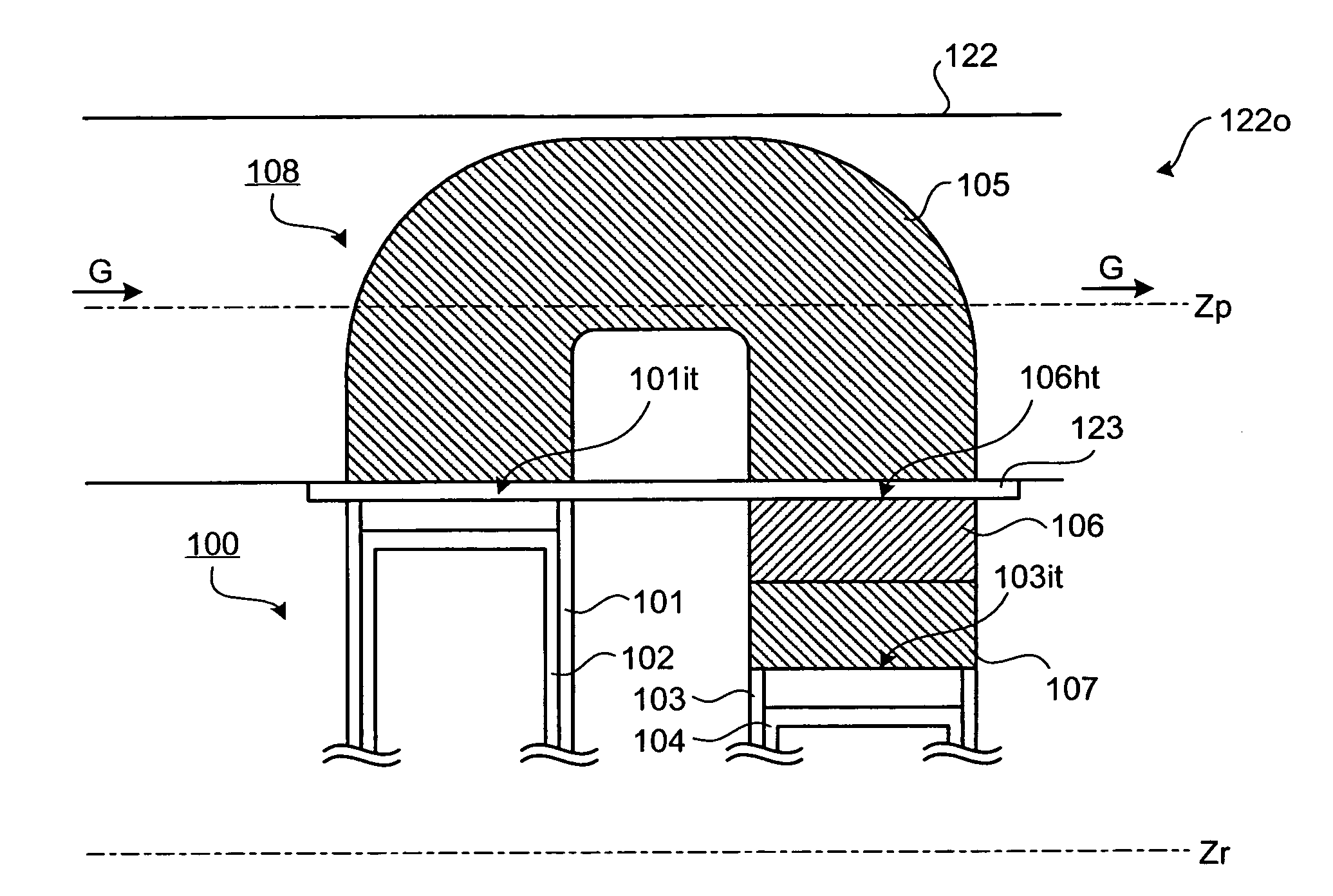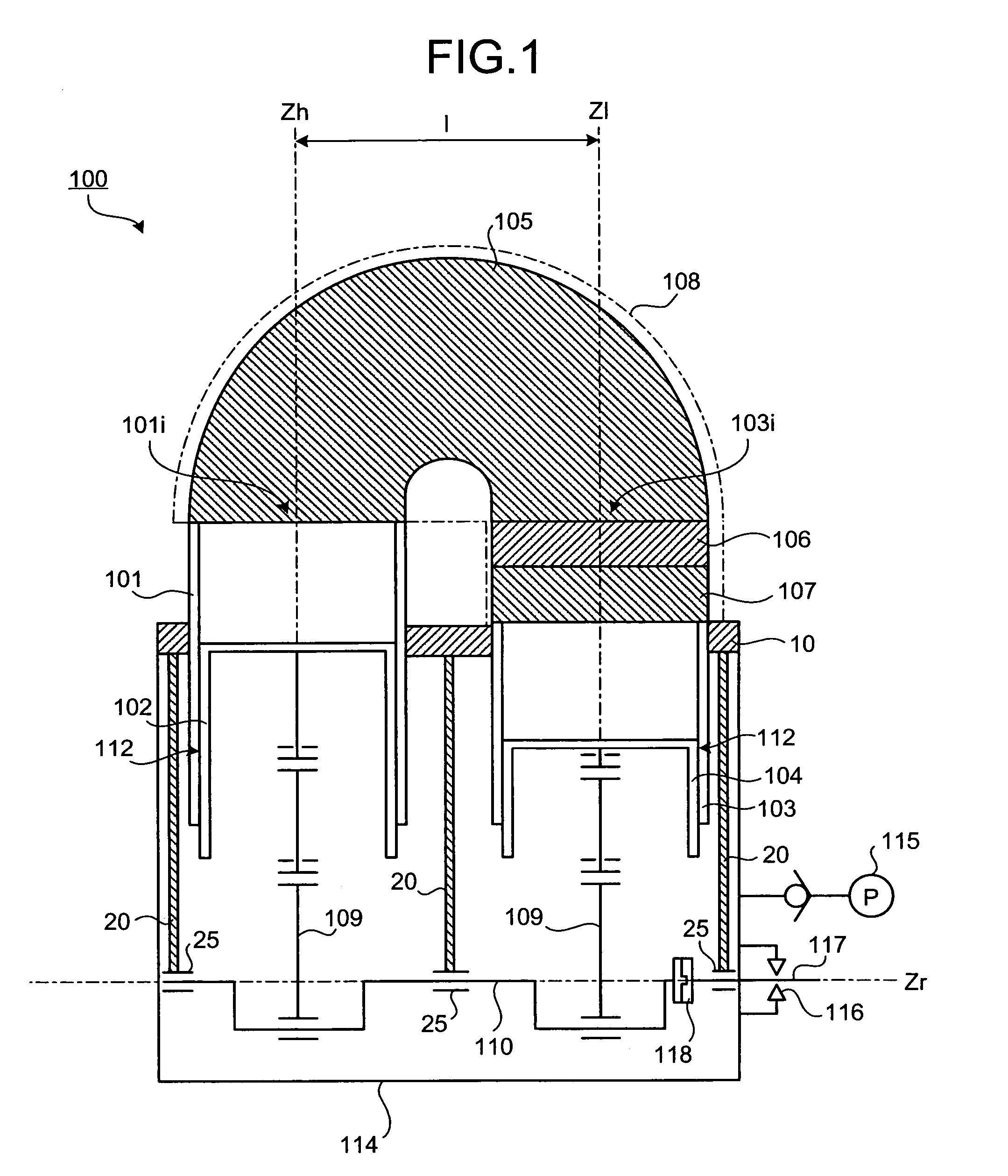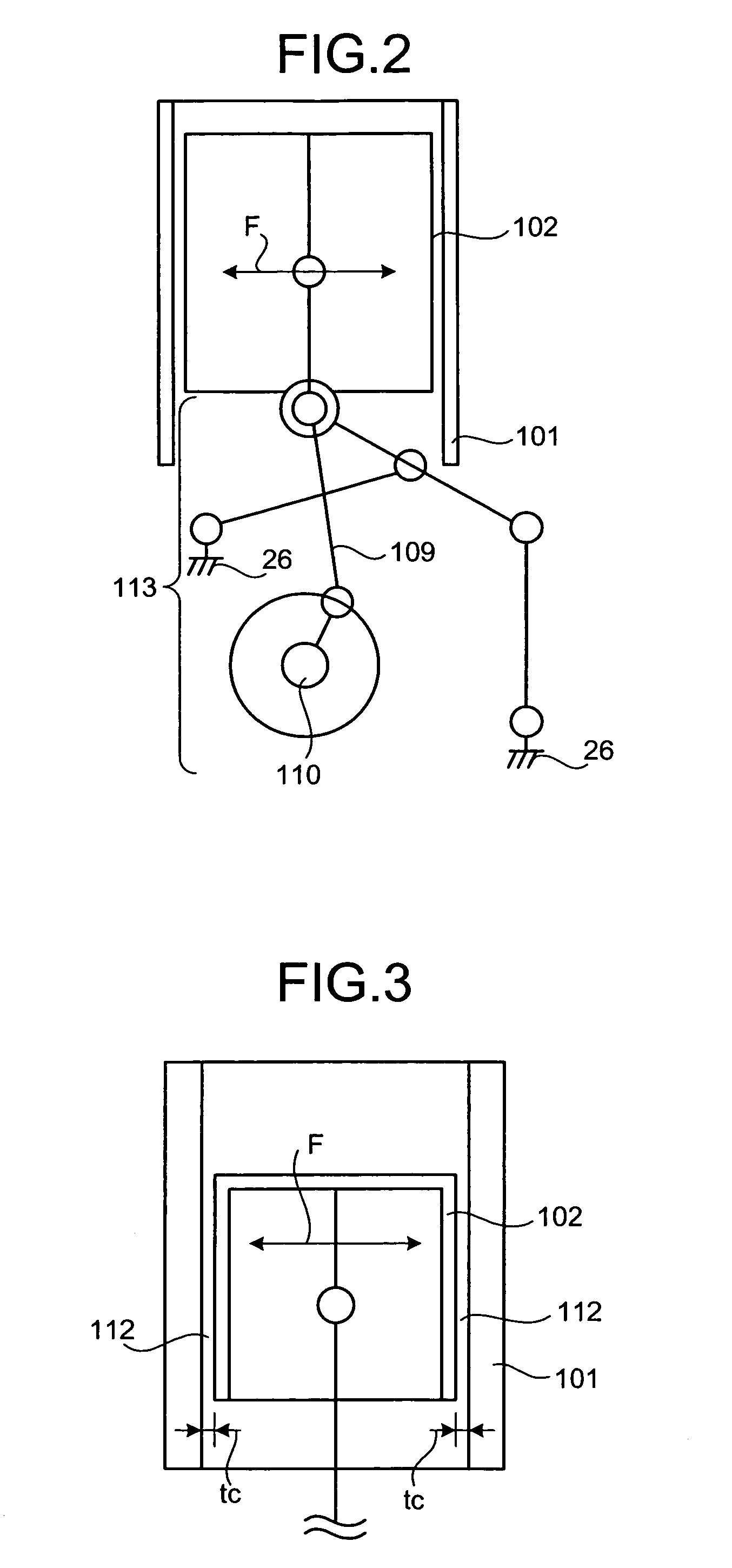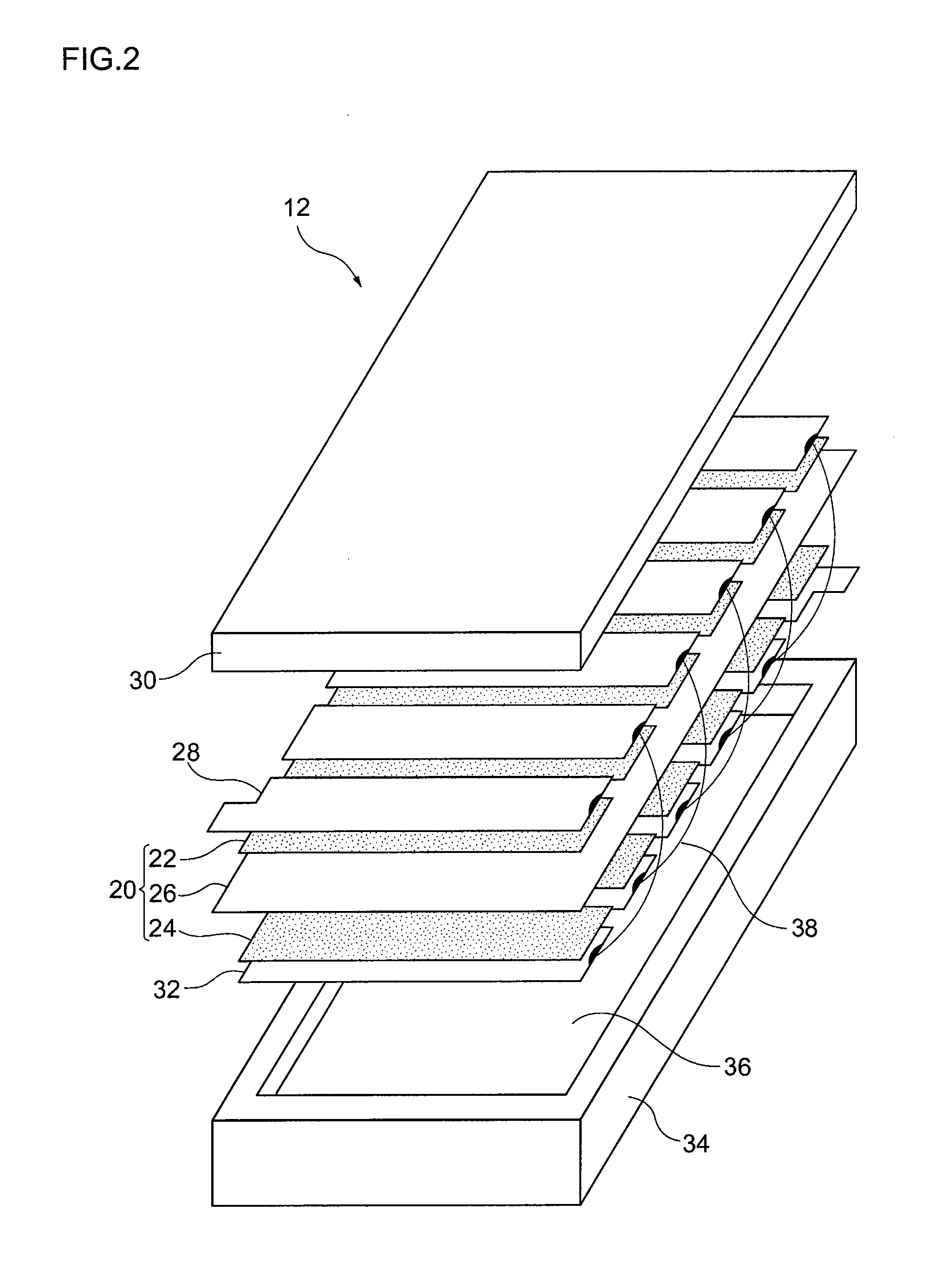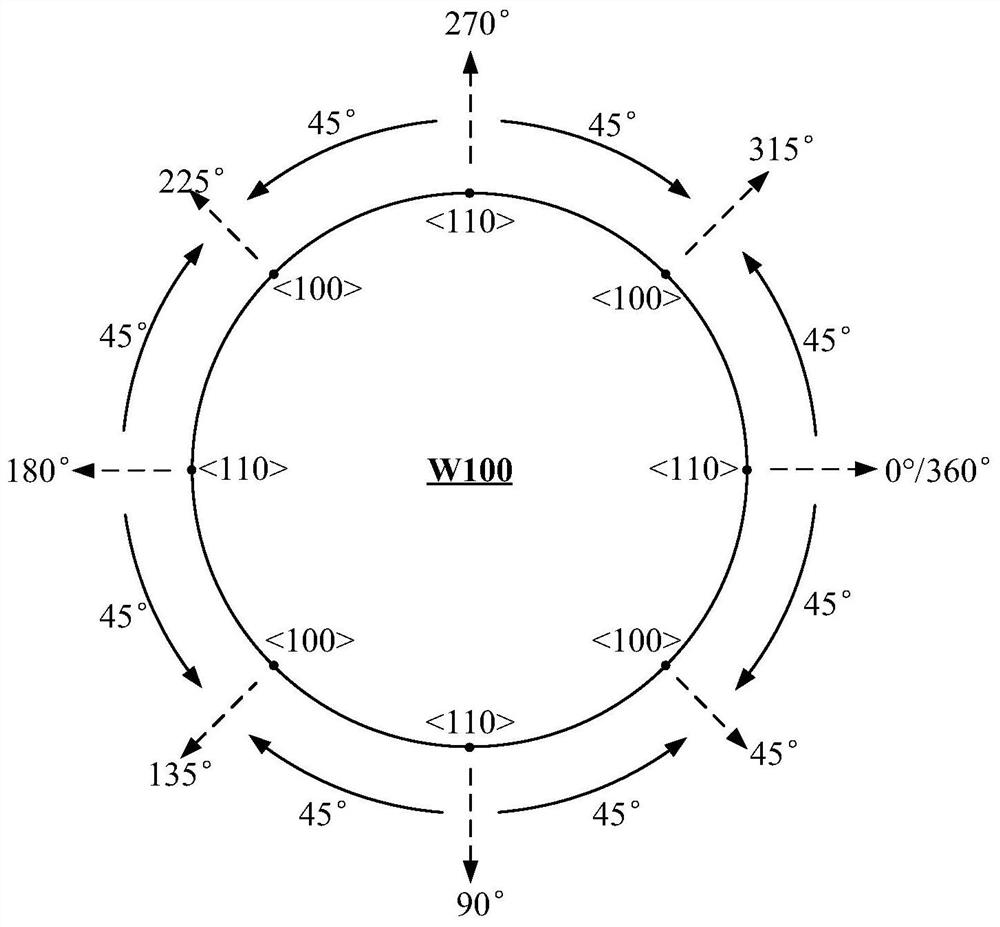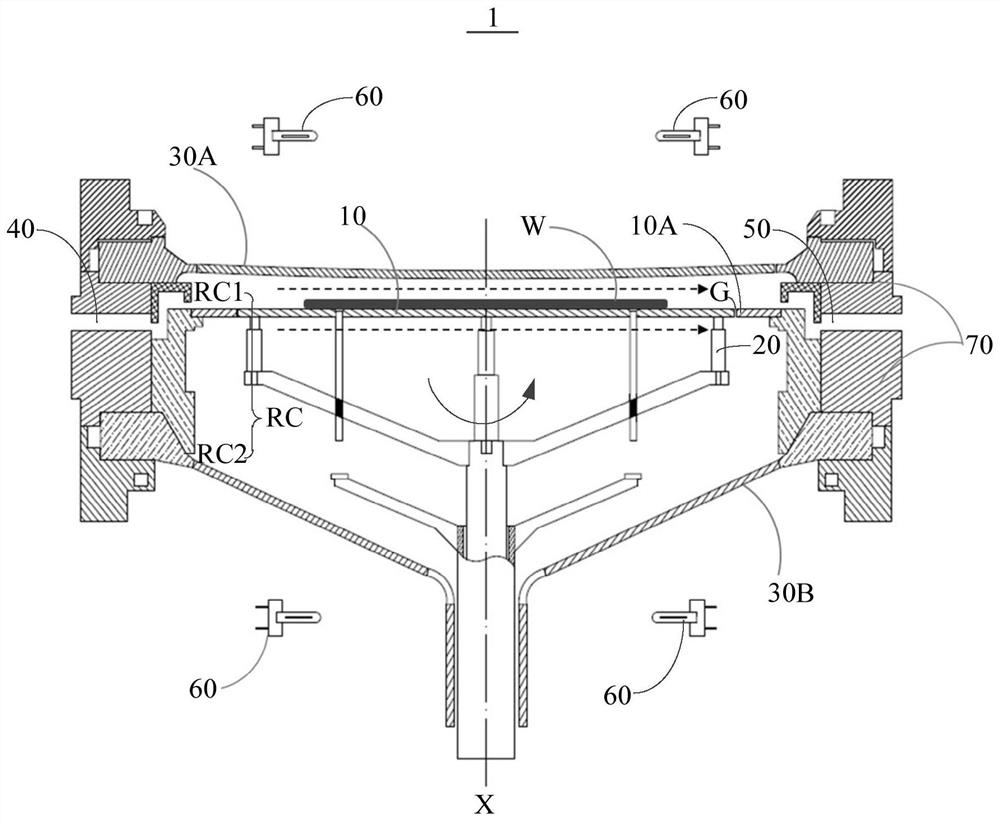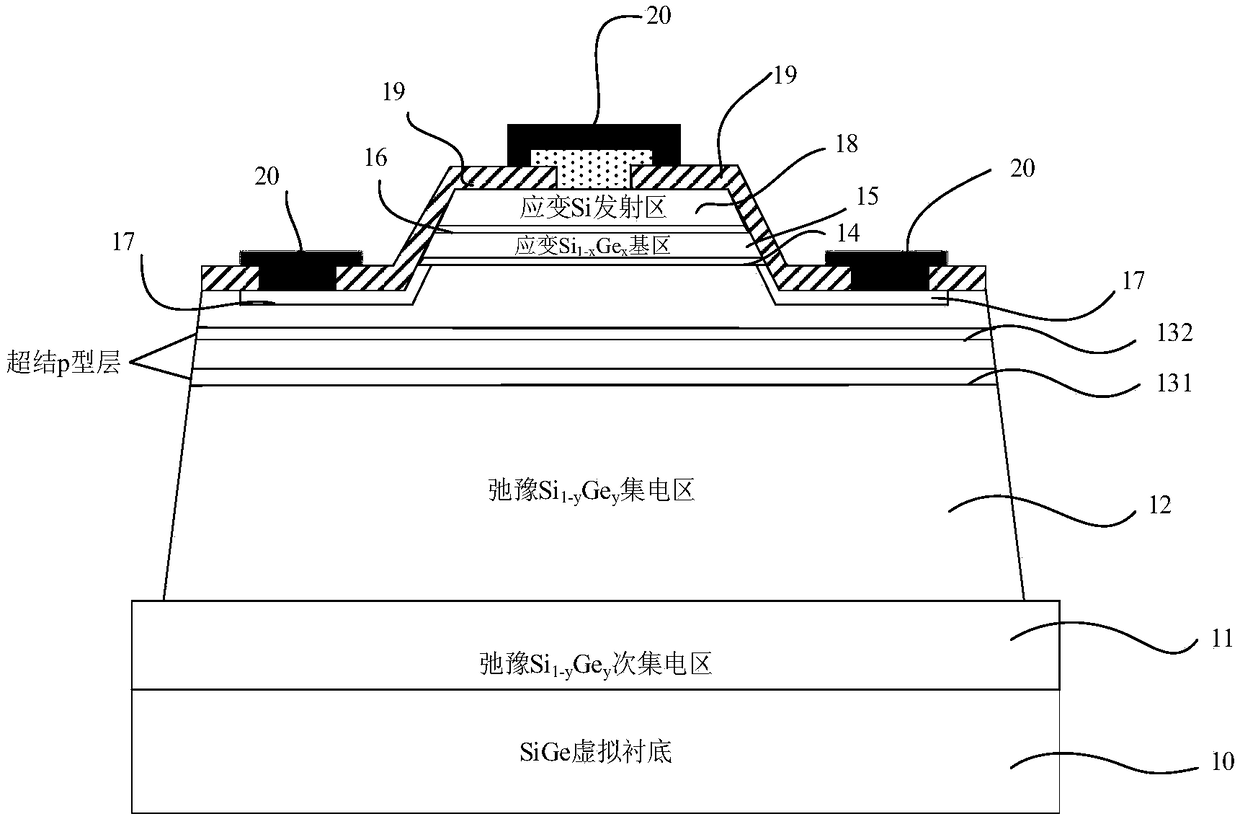Patents
Literature
Hiro is an intelligent assistant for R&D personnel, combined with Patent DNA, to facilitate innovative research.
52results about How to "Reduced temperature distribution" patented technology
Efficacy Topic
Property
Owner
Technical Advancement
Application Domain
Technology Topic
Technology Field Word
Patent Country/Region
Patent Type
Patent Status
Application Year
Inventor
Battery module, electric storage device and electric system
ActiveCN101552351AImprove cooling effectSolution to short lifeCell temperature controlCell component detailsEngineeringBattery pack
A battery module (110) is provided with a battery pack (10) which configures a plurality of single lithium batteries to at least two segments and a casing (20) for holding the single lithium batteries, wherein, an inlet side flowpath (60) and an outlet side flowpath (61) are staggered in the height direction of the casing (20). Furthermore a height h1 of the inlet side flowpath (60) and a height h2 of the outlet side flowpath (61) are equal. Furthermore a clearance delta1 between the single lithium batteries (11) and a clearance delta2 between single lithium batteries (11) at two ends of each single battery row and the casing (20) are set to an approximate same dimension. The flowing direction of the cooling medium (4) which is introduced into the inlet side flowpath (60) is shunt to the side of the inlet side flowpath (60) and the clearance delta2. According to the structure, each single lithium battery (11) can be distributed with the cooling medium (4) with uniform flow capacity for cooling each single lithium battery (11).
Owner:NIPPON AUTOMOTIVE ENERGY CO LTD
Positioning system and linear motor
ActiveUS20060220478A1Effective temperature controlGood effectAC motor controlPhotomechanical apparatusEngineeringLinear motor
Disclosed is a positioning system and an exposure apparatus having the same, wherein in accordance with an aspect of the present invention the positioning system includes a stage being movable and being configured to carry an object thereon, an interferometer configured to measure a position of the stage, a driving system configured to drive the stage, and a heater provided between a light path of the interferometer and a coil which is a component element of the driving system. In one preferred form of the present invention, the heater has a film-like shape or it is formed as a portion of a cooling jacket that is configured to cover the coil.
Owner:CANON KK
Heating system
InactiveUS6875960B2Reduced temperature distributionSmall rangeSemiconductor/solid-state device manufacturingHot plates heating arrangementsPower controllerHeating system
A heating system 25 has a main electric heat-generating element 3 and a heating surface 4a for heating an object, auxiliary electric heat-generating elements 5A to 5D, and a main power source 1 for supplying power to the main heating element. The system 25 further has an auxiliary power source 2 for supplying power to the auxiliary heating elements, and a power source controller for controlling the power supplied to the main heating element and to the auxiliary heating elements respectively and independently. Power supplied to the main heating element 3 is controlled by the controller within a first power range and power supplied to the auxiliary heating elements is controlled by the controller within a second power range. The second power range has a width smaller than that of the first power range so as to control temperature distribution on the heating surface 4a.
Owner:NGK INSULATORS LTD
Laser welding method of high silicon steel
ActiveCN106041305ARealize welding formingImprove cooling conditionsWelding/soldering/cutting articlesLaser beam welding apparatusAlloySlow cooling
The invention belongs to the field of the metallurgy technology and material science, and aims at providing a laser welding process method of brittle high silicon steel. Quick welding of strip tension rolling in the rolling preparation process of a high silicon steel thin strip is met. According to the mass ratio, an adopted alloy is prepared from 93%-96.5% of Fe and 3.5%-7% of Si; and the thickness ranges from 0.1 mm to 3.5 mm. According to the method, laser welding and a supplementary heat source are combined, and double-face or single-face welding is adopted; preheating carried out before welding is utilized for controlling the temperature rise speed, and heat preservation during welding and heat preservation carried out after welding are utilized for slow cooling to control the temperature reduction speed; and the temperature gradient and welding stress in the weld joint cooling process are reduced, and welding forming of the brittle high silicon steel is achieved. By means of the adoption of the method, cracks generated by the too high welding stress of the brittle high silicon steel can be avoided well, and the yield and the mechanical performance of the brittle high silicon steel are increased.
Owner:UNIV OF SCI & TECH BEIJING
High efficiency electrical outdoor barbecue device
InactiveUS20110049125A1Improve efficiencyReduced temperature distributionDomestic stoves or rangesElectrical heating fuelGratingEngineering
A high efficiency electrical outdoor barbecue device includes plural arc reflective boards that juxtapose and are spaced from each other to define a residue discharge gap, heating tube connection end protection boxes, heating tubes, shielding screens, and roasting gratings, which are sequentially deposited, from lower side to upper side, in a roasting basin that has a top opening to which a cover is pivotally connected. Opposite ends of the heating tubes are respectively positioned in and supported by the protection boxes, which are fit into and retained by positioning cavities defined in corresponding walls of the basin. The shielding screens are set above and thus protect the heating tubes from being stained by drippings of the roasted food. The arc reflective boards are set below the heating tubes to reflect the infrared light and heat generated by the heating tubes toward the roasting gratings for fully heating the roasted foods.
Owner:GRAND HALL ENTERPRISE COMPANY
Cooling apparatus and a thermostat with the apparatus installed therein
InactiveUS6938432B2Improve accuracyReduced temperature distributionMechanical apparatusFluid circulation arrangementThermostatEngineering
A cooling apparatus (1) has a compressor (2), a condenser (3), an expansion valve (5), an evaporator (6) and an electric valve (10), all connected to each other in this order by a piping line to form a refrigeration circuit. The apparatus further has a heating section (11) and a bypass (12), and a thermosensitive tube (13) of the expansion valve is disposed between the heating section (11) and the electric valve (10) so that temperature of a refrigerant having left this section is detected before entering this valve (10). The refrigerant remains as a gas-liquid mixture until it leaves the evaporator (6) such that temperature of the refrigerant is uniform within the evaporator and equal to the saturation vapor temperature of this refrigerant, and therefore fluctuation in the refrigerant temperature is diminished.
Owner:ESPEC CORP
Hollow turbine blade
InactiveCN1936273AReduce the temperatureEasy to crackBlade accessoriesMachines/enginesCombustionTurbine blade
This hollow turbine blade comprises airfoil bodies 36 formed on the rear wall 42 of the blade and the front wall 44 of the blade and washed down by combustion gas 11, at least one partition wall 48 formed inside a turbine blade 30, and the at least one slit 56 formed on the combustion gas side of the blade walls 42, 44 and extending along the blade axis. The airfoil bodies comprise a height H equal to a distance between a blade pedestal 32 and an airfoil body end 58 measured along the blade axis. The partition wall joints the rear wall 42 of the blade to the front wall 44 of the blade at the joined portion 50. The slits 56, 62 are positioned in the blade walls 42, 44 on the combustion gas side to face the joined portion 50 formed of the partition wall 48 and the blade walls 42, 44.
Owner:SIEMENS AG
Method and apparatus for producing dope
InactiveUS20050043444A1Uniformity is extremely uniformGood optical performanceMixing methodsPolarising elementsBoiling pointHeat transmission
The mixture solvent of dichlorimethane type, the TAC and the plasticizer are supplied into a dissolution tank, and stirred therein with a stirrer to obtain a dispersing solution. The dispersing solution is fed into a storing tank and further stirred therein. Then the dispersing solution is fed by a pump to a heat exchanger for the heating, and thereafter the stirring is made with a static mixer. The temperatures of the dope is measured at many measuring points. On the basis of the temperature distribution, the heat transmission conditions of the heat exchanger are adjusted. Then the dope is fed to a heat exchanger for cooling, to cool to at most the normal boiling point of the dope. Then the mixing is made with a static mixer. Thus the obtained dope is uniform.
Owner:FUJIFILM CORP
Exposure apparatus and device manufacturing method
InactiveUS20100055623A1Reduce thermal influenceWithout decrease evacuation efficiencyPhotomechanical exposure apparatusMicrolithography exposure apparatusEngineeringRadiation
An exposure apparatus of the present invention includes a vacuum container accommodating a structure, a vacuum pump configured to increase the degree of vacuum achieved inside the vacuum container, a radiation unit configured to perform a heat exchange through radiation for the structure, a temperature detecting unit configured to detect the temperature of the structure, and a control unit configured to control the radiation unit based on the detected temperature, wherein the radiation unit is arranged at a position determined so that the radiation unit does not interfere with a heat exchange achieved through radiation between the vacuum pump and the structure.
Owner:CANON KK
Method and apparatus for thermal analysis
InactiveUS6885964B2Easy to operateReduced temperature distributionThermometer detailsMaterial thermal conductivityHeat transfer coefficientThermal analysis
In a method and an apparatus for thermal analysis, a target region is divided by dividing the geometry of the target object of the thermal analysis into a finite number of finite elements or cells. The thermal analysis on the target region is conducted using the results of the division. A temperature distribution on the target object is obtained from the heat transfer coefficients by a temperature distribution calculating unit. The actual temperatures at specific points are obtained based on temperature distribution obtained by the specific point temperature calculating unit. Differences between the actually obtained temperatures at the specific points and the predetermined target temperatures at the specific points are obtained by a difference calculating / determining unit. If the differences are determined to be out of the prescribed range, the heat transfer coefficients are changed by a heat transfer coefficient updating unit. These steps are repeated until the differences fall within the prescribed range so that temperature distribution on the target object is obtained. The method and apparatus for thermal analysis obtains temperature distribution universally, irrespective of geometries of the target object.
Owner:HONDA MOTOR CO LTD
Exhaust heat recovery apparatus
InactiveUS20060123779A1Improve installabilitySave spaceInternal combustion piston enginesRecuperative heat exchangersEngineeringInternal combustion engine
An exhaust heat recovery apparatus (functioning as a Stirling engine), which is installed in, for example, an exhaust passage of an internal combustion engine and an exhaust passage of factory exhaust heat as restraining reduction in exhaust heat recovery efficiency, is installed in a device installing surface formed in the heat medium passage so that the device installing surface and a heater connecting side end surface of a high temperature side cylinder become parallel and the device installing surface and a cooler connecting side end surface of a low temperature side cylinder become parallel. The high temperature side cylinder is arranged at an upstream side of a direction of exhaust flow. The low temperature side cylinder is arranged at a downstream side of the high temperature side cylinder.
Owner:TOYOTA JIDOSHA KK
Positioning system and linear motor
ActiveUS7557469B2Reduce heat transferEffective temperature controlAC motor controlPhotomechanical apparatusElectric machineEngineering
A positioning system includes a stage configured to move while carrying an object thereon, an interferometer configured to measure a position of the stage, a driving unit configured to drive the stage, a heater provided between a light path of the interferometer and a coil which is a component element of the driving unit, and a cooling jacket configured to cover the coil and to circulate a cooling medium therein. The heater is provided on a surface of the cooling jacket.
Owner:CANON KK
Upper reflecting layer structure, reactor core structure and high-temperature gas-cooled reactor
PendingCN112201369AImprove structural strengthImprove heat transfer effectNuclear energy generationShieldingEngineeringGraphite
The invention discloses an upper reflecting layer structure. The upper reflecting layer structure is composed of a plurality of graphite bricks, wherein a cavity and a plurality of channels are formedin each graphite brick, and the cavities are formed in the upper portions of the graphite bricks and used for allowing a coolant to circulate; and the plurality of channels are arranged at the lowerparts of the graphite bricks, the inlet of each channel communicates with the corresponding chamber, and the outlets of the channels are uniformly distributed on the lower end surfaces of the graphitebricks. The invention further discloses a reactor core structure adopting the upper reflecting layer structure and a high-temperature gas-cooled reactor. According to the invention, the upper reflecting layer structure can distribute the coolant, so the uniformity of the coolant entering a reactor core fuel area is improved.
Owner:CHINA NUCLEAR POWER ENG CO LTD
Preparation method of cathode heater assembly with high power and long service life
ActiveCN107768210AOvercoming the problem of uneven axial temperature distributionReduce heating powerDischarge tube solid thermionic cathodesThermionic cathode manufactureCold sideRhenium
The invention discloses a preparation method of a cathode heater assembly with high power and long service life. The preparation method comprises the following steps: using a rhenium tungsten wire toprepare a double-end double-screw cylinder heater prefabticated member; putting the double-end double-screw cylinder heater prefabticated member on a half-cylinder heater forming die to form a double-end double-screw cylinder heater; putting the double-end double-screw cylinder heater into a circular ring cavity die and uniformly arranging screw pitches to be bent into a circular heater prefabticated member; carrying out blackening, insulating layer coating and sintering treatment on the heater prefabticated member in sequence to form a required heater; enabling the space of a cathode and theheater to be filled with a ceramic filler; and then sintering to prepare the cathode heater assembly. By adopting the double-end double-screw ring structure, the problem, that the temperature distribution in the axial direction of the cathode is nonuniform caused by a cold side effect at two ends of the cathode, of a previous double-screw filament cathode is overcome, the temperature distributionon the surface of the cathode is uniform, and the operating point temperature of the cathode can be reduced; and according to the prepared cathode heater assembly, the starting time for cathode operation can be shortened by about one half, and the heating efficiency of the cathode is reduced.
Owner:湖北汉光科技股份有限公司
Heating system
InactiveUS20030071032A1Reduced temperature distributionLow costSemiconductor/solid-state device manufacturingHot plates heating arrangementsEngineeringHeating system
A heating system 25 has a main heating element 3 generating heat be supplying an electric power supplied and having a heating surface 4a for heating an object, auxiliary heating elements 5A to 5D generating heat by supplying an electric power, and a main power source 1 for supplying the to the main heating element 3. The system 25 further has an auxiliary power source 2 supplying the power to the auxiliary heating elements 5A to 5D, and a power source controller 2 for controlling the power supplied to the main heating element and the power supplied to the auxiliary heating elements respectively and independently. The power supplied from the main power source 1 to the main heating element 3 is controlled by the controller 2 within a first power range. The power supplied from the auxiliary power source to the auxiliary heating elements is controlled by the controller 2 within a second power range. The second power range has a width smaller than that of the first power range so as to control temperature distribution on the heating surface 4a.
Owner:NGK INSULATORS LTD
Hydrogen generating apparatus and fuel cell system
ActiveCN101500940AReduce coolingReduced temperature distributionHydrogenChemical industryInterior spaceFuel cells
A hydrogen generating apparatus comprising combustion gas duct (5) for flow of combustion gas from a combustor; preheater evaporator (6) adapted to be fed with raw gas and water and to evaporate the water and heat the raw gas by heat transferred via partition walls from carbon monoxide cutdown unit (10) and the combustion gas duct; reformer (7) adapted to produce a reformate gas from the raw gas and steam fed from the preheater evaporator with the use of reforming catalyst (8) and heat transferred via partition wall from the combustion gas duct; carbon monoxide cutdown unit (10) adapted to remove any carbon monoxide contained in the reformate gas fed from the reformer with the use of carbon monoxide removing catalyst (9); and tubular body (3) having its both ends closed wherein, dividing the interior space thereof by partition walls (1),(2)(30),(47), the combustion gas duct, preheater evaporator, reformer and carbon monoxide cutdown unit are provided thereinside. Between the preheater evaporator and the carbon monoxide cutdown unit, there is provided heat transfer buffer part (11) composed of partition wall (30) defining the preheater evaporator and partition wall (47) defining the carbon monoxide cutdown unit, disposed opposite to each other with a spacing therebetween.
Owner:PANASONIC CORP
High-thermostability super-junction stress Si/SiGe heterojunction bipolar transistor
ActiveCN106169498AImprove thermal stabilityIncreased sensitivitySemiconductor devicesElectronic temperatureWorking temperature
The invention discloses a super-junction stress Si / SiGe heterojunction bipolar transistor with a high thermostability. A SiGe virtual substrate structure is adopted by the transistor; and a Si<1-y>Ge<y> secondary collector region, a relaxation Si<1-y>Ge<y> collector region, a stress Si<1-x>Ge<x> base region and a stress Si emitter region are respectively and epitaxially grown on the SiGe virtual substrate structure. According to the transistor, by introducing a super-junction p-type layer parallel to the stress Si<1-x>Ge<x> base region to the relaxation Si<1-y>Ge<y> collector region, the purposes of improving the electric field distribution in a collector junction space-charge region, reducing the peak electronic temperature, inhibiting the impact ionization and improving a device breakdown voltage are achieved; and meanwhile, with the introduction of the super-junction p-type layer, the doping concentration and the phonon scattering rate of the relaxation Si<1-y>Ge<y> collector region are effectively reduced, and the thermal conductivity of the relaxation Si<1-y>Ge<y> collector region is improved; the transistor has the characteristics of large current gain and high breakdown voltage; the internal temperature distribution is significantly reduced, the characteristic frequency and the temperature sensibility are improved, and the high-thermostability work can be realized in a relatively wide working temperature range.
Owner:BEIJING UNIV OF TECH
Method of effecting heating and cooling in reduced pressure atmosphere
InactiveUS20050029243A1Shorten cooling timeShorten heating timeDrying solid materials with heatMuffle furnacesIn planeEmissivity
The present invention provides a method of effecting high temperature vacuum heating and cooling suitable for conducting heat treatment to be performed on components used in a display apparatus. The present invention's heating / cooling method comprises the steps of: heating a plate-like member placed in a reduced pressure atmosphere in a chamber by heating means opposed to the plate-like member; and cooling the plate-like member by a cooling plate which is opposed to the plate-like member, with the heating means therebetween, the cooling plate having a heat reflecting function. In one aspect of the present invention, the cooling plate is designed to have a emissivity of not less than 0.50 but not more than 0.80 so as to minimizes a sum of a requisite time for the heating step and a requisite time for the cooling step. In another aspect of the present invention, the plate-like member to be heated has two main surfaces differing from each in an in-plane distribution of emissivity and the heating means is opposed to one of the two main surfaces, which has a smaller distribution ratio, thereby realizing uniform and efficient heating / cooling.
Owner:CANON KK
Semiconductor Wavelength Converting Devices and Light Sources for Generating Infrared Rays
InactiveUS20130156062A1Reduced temperature distributionPropagation loss become significantNanoopticsLight demodulationInfraredNonlinear optical crystal
It is provided a wavelength converting device oscillating an idler light having a wavelength of 5 to 10 μm from a pump light. The wavelength of the idler light is longer than that of the pump light. The wavelength converting device includes a wavelength converting layer 5 of a semiconductor non-linear optical crystal and having a thickness of 50 μm or smaller. The wavelength converting layer 5 includes a crystal orientation inversion structure wherein crystal orientation of the optical crystal is inverted at a predetermined period and at least one flat main face 5b. The device further includes a Peltier device 2 controlling a temperature of the wavelength converting layer 5; and a clad portion 4 joined with the flat main face 5b of the wavelength converting layer 5 and provided between the wavelength converting layer 5 and the Peltier device 2. The pump light, idler light and signal light satisfies a particular phase matching condition.
Owner:NGK INSULATORS LTD
Method of effecting heating and cooling in reduced pressure atmosphere
InactiveUS7126087B2Minimize sumShorten heating and cooling timeDrying solid materials with heatMuffle furnacesEmissivityPressure Atmosphere
Owner:CANON KK
Magnetic field generator
InactiveUS7733090B2Improve abilitiesIncrease temperatureMagnetic measurementsDiagnostic recording/measuringHeat conductingMagnetic poles
There is provided a magnetic field generator which is capable of generating a uniform magnetic field of a desired intensity easily and stably without increasing running cost. The magnetic field generator includes a pair of plate yokes. The plate yokes have opposed surfaces provided with magnetic pole respectively. The magnetic pole includes a permanent magnet group whereas the magnetic pole includes a permanent magnet group. Each of the permanent magnet groups is formed substantially in a disc like shape, as an integral body made of a plurality of permanent magnets and a plurality of heat conducting members. Tubular heaters, buried in the plate yokes, generate heat, which is conducted via the plate yokes to each permanent magnet and each heat conducting member which constitute the permanent magnet groups.
Owner:HITACHI METALS LTD
Neural network accelerator heat effect optimization method based on memristor cross array
PendingCN113987985AHigh precisionReduced temperature distributionNeural architecturesComputer aided designNetwork modelMemristor
A neural network accelerator heat effect optimization method based on a memristor cross array comprises the following steps: 1, establishing a rapid temperature distribution calculation model: selecting pulse power of one point in an actual power matrix to divide the pulse power by the volume to obtain a pulse heat source value, inputting the pulse heat source value into ANSYS software to obtain a pulse temperature matrix, and carrying out convolution on the obtained pulse temperature matrix and the actual power matrix to be divided by the pulse power to obtain an actual temperature distribution matrix; 2, establishing an MLP neural network failure evaluation model: applying a distribution matrix of the actual temperature T obtained by the rapid temperature distribution calculation model to the MLP neural network failure evaluation model to obtain the influence of the actual temperature T on a weight value in the MLP neural network model; and 3, carrying out MLP neural network model mapping of off-line thermal optimization. According to the design, the arrangement of the memristor array is optimized, the influence of temperature rise on the memristors is reduced, and the precision of the offline training process of the neural network is improved.
Owner:WUHAN UNIV OF TECH
Rotating electric machine
ActiveCN105324918AReduced temperature distributionSuppress demagnetizationMagnetic circuit rotating partsMagnetic circuit stationary partsElectric machineEngineering
In this motor, a rotor is constituted by a small angle rotor portion and a large angle rotor portion having magnet end-to-end angles different from each other, said magnet end-to-end angles being a plane angle between lines connecting each of the most outer circumferential side end portions of permanent magnets facing each other and the shaft center of the rotor. The rotor is also constituted by stacking, along the shaft line, the small angle rotor portion, the large angle rotor portion, and the small angle rotor portion in this order into three layers. This prevents the permanent magnets from being demagnetized due to temperature rise and also obtains a rotating electric machine having the permanent magnets, the temperature distribution of which is lessened in a shaft line direction.
Owner:MITSUBISHI ELECTRIC CORP
Magnetic Field Generator
InactiveUS20080303522A1Reduce energy necessaryLow costMagnetic measurementsDiagnostic recording/measuringHeat conductingMagnetic poles
There is provided a magnetic field generator 10 which is capable of generating a uniform magnetic field of a desired intensity easily and stably without increasing running cost. The magnetic field generator 10 includes a pair of plate yokes 12a, 12b. The plate yokes 12a, 12b have opposed surfaces provided with magnetic pole 14a, 14b respectively. The magnetic pole 14a includes a permanent magnet group 16a whereas the magnetic pole 14b includes a permanent magnet group 16b. Each of the permanent magnet groups 16a, 16b is formed substantially in a disc like shape, as an integral body made of a plurality of permanent magnets 20 and a plurality of heat conducting members 22. Tubular heaters 34, buried in the plate yokes 12a, 12b, generate heat, which is conducted via the plate yokes 12a, 12b to each permanent magnet 20 and each heat conducting member 22 which constitute the permanent magnet groups 16a, 16b.
Owner:HITACHI METALS LTD
Cooling apparatus and a thermostat with the apparatus installed therein
InactiveUS7415836B2Improve accuracyReduced temperature distributionMechanical apparatusDomestic cooling apparatusThermostatRefrigeration
A cooling apparatus (1) has a compressor (2), a condenser (3), an expansion valve (5), an evaporator (6) and an electric valve (10), all connected to each other in this order by a piping line to form a refrigeration circuit. The apparatus further has a heating section (11) and a bypass (12), and a thermosensitive tube (13) of the expansion valve is disposed between the heating section (11) and the electric valve (10) so that temperature of a refrigerant having left this section is detected before entering this valve (10). The refrigerant remains as a gas-liquid mixture until it leaves the evaporator (6) such that temperature of the refrigerant is uniform within the evaporator and equal to the saturation vapor temperature of this refrigerant, and therefore fluctuation in the refrigerant temperature is diminished.
Owner:ENOMOTO SHINICHI
Combustion assembly structure of turbojet engine
ActiveCN111520745AMiniaturizationReduce weightContinuous combustion chamberPump componentsCombustion chamberAxial distance
The invention discloses a combustion assembly structure of a turbojet engine. The combustion assembly structure is characterized in that a guider and a front cover are arranged at the two ends of a case with a cavity structure in the middle respectively, a shaft sleeve coaxial with the case is fixed to the guider, a diffuser is fixed to the outer ring of the other end of the shaft sleeve, the sections, along the axis of the shaft sleeve, of the connecting faces between guide vanes and the shaft sleeve are in a V shape, the outer ring of the shaft sleeve is provided with a double-layer annularcombustion tank coaxial with the shaft sleeve, the section, along the axis of the shaft sleeve, of the end face of one end of the double-layer annular combustion tank is V-shaped, the two V-shaped structures enable gas entering from the diffuser to be attached to the wall face of the V-shaped structure of the double-layer annular combustion tank better, meanwhile, the gas entering from the diffuser is prevented from flowing back at a gas inlet, the velocity field is more uniform, the high-speed flow field is optimized, a local high-speed area is avoided, a main combustion area of a combustionchamber can be advanced, and the outlet temperature of the combustion chamber is further reduced; and the axial distance between the diffuser and the double-layer annular combustion tank is reduced, so that the total length of the engine is reduced, the weight of the engine is reduced, and miniaturization of the combustion assembly of the turbojet engine is facilitated.
Owner:NAT INST CORP OF ADDITIVE MFG XIAN
Exhaust heat recovery apparatus
InactiveUS7458216B2Reduced temperature distributionSpeed up heat dissipationInternal combustion piston enginesRecuperative heat exchangersExternal combustion engineEngineering
An exhaust heat recovery apparatus (functioning as a Stirling engine), which is installed in, for example, an exhaust passage of an internal combustion engine and an exhaust passage of factory exhaust heat as restraining reduction in exhaust heat recovery efficiency, is installed in a device installing surface formed in the heat medium passage so that the device installing surface and a heater connecting side end surface of a high temperature side cylinder become parallel and the device installing surface and a cooler connecting side end surface of a low temperature side cylinder become parallel. The high temperature side cylinder is arranged at an upstream side of a direction of exhaust flow. The low temperature side cylinder is arranged at a downstream side of the high temperature side cylinder.
Owner:TOYOTA JIDOSHA KK
Fuel cell system
InactiveUS20100248082A1Reduced temperature distributionSimple configurationReactant parameters controlFuel cell detailsFuel cellsFuel tank
A fuel cell system includes: a fuel cell; a fuel tank provided opposite to the fuel cell and adapted to contain hydrogen absorbing alloy; and a supply channel adapted to supply hydrogen discharged from the hydrogen absorbing alloy to the fuel cell. The fuel cartridge is provided with a discharging unit adapted to discharge hydrogen from the hydrogen absorbing alloy to the supply channel. The discharging unit is provided opposite to the center of the fuel cell.
Owner:SANYO ELECTRIC CO LTD
Base supporting frame, device and method for epitaxial growth of silicon wafer
ActiveCN113604871AUniform growth rateImprove flatnessPolycrystalline material growthFinal product manufactureCrystal orientationRadiant heat
The embodiment of the invention discloses a base supporting frame, a device and a method for epitaxial growth of a silicon wafer. The base supporting frame comprises: four base supporting arms, which extend outwards in a radial direction and extend upwards in an axial direction from the longitudinal axis of the base supporting frame, wherein the four base supporting arms are evenly distributed in a circumferential direction around the longitudinal axis, and the far end parts of the four base supporting arms support a base used for bearing the silicon wafer together; and four concave lenses, which are respectively connected to the four base supporting arms, wherein each concave lens extends along the connected base supporting arm, the four concave lenses are arranged in a manner that four <110> crystal orientations corresponding to the silicon wafer borne in the base are respectively aligned with the four base supporting arms in a vertical direction, and radiant heat radiated to four <110> crystal orientation positions of the silicon wafer through the four concave lenses in a vertical direction can be refracted and diffused by the four concave lenses.
Owner:XIAN ESWIN MATERIAL TECH CO LTD +1
High thermal stability superjunction strained si/sige heterojunction bipolar transistor
ActiveCN106169498BGe composition in high base regionIncrease current gainSemiconductor devicesElectronic temperatureWorking temperature
The invention discloses a super-junction stress Si / SiGe heterojunction bipolar transistor with a high thermostability. A SiGe virtual substrate structure is adopted by the transistor; and a Si<1-y>Ge<y> secondary collector region, a relaxation Si<1-y>Ge<y> collector region, a stress Si<1-x>Ge<x> base region and a stress Si emitter region are respectively and epitaxially grown on the SiGe virtual substrate structure. According to the transistor, by introducing a super-junction p-type layer parallel to the stress Si<1-x>Ge<x> base region to the relaxation Si<1-y>Ge<y> collector region, the purposes of improving the electric field distribution in a collector junction space-charge region, reducing the peak electronic temperature, inhibiting the impact ionization and improving a device breakdown voltage are achieved; and meanwhile, with the introduction of the super-junction p-type layer, the doping concentration and the phonon scattering rate of the relaxation Si<1-y>Ge<y> collector region are effectively reduced, and the thermal conductivity of the relaxation Si<1-y>Ge<y> collector region is improved; the transistor has the characteristics of large current gain and high breakdown voltage; the internal temperature distribution is significantly reduced, the characteristic frequency and the temperature sensibility are improved, and the high-thermostability work can be realized in a relatively wide working temperature range.
Owner:BEIJING UNIV OF TECH
Features
- R&D
- Intellectual Property
- Life Sciences
- Materials
- Tech Scout
Why Patsnap Eureka
- Unparalleled Data Quality
- Higher Quality Content
- 60% Fewer Hallucinations
Social media
Patsnap Eureka Blog
Learn More Browse by: Latest US Patents, China's latest patents, Technical Efficacy Thesaurus, Application Domain, Technology Topic, Popular Technical Reports.
© 2025 PatSnap. All rights reserved.Legal|Privacy policy|Modern Slavery Act Transparency Statement|Sitemap|About US| Contact US: help@patsnap.com
